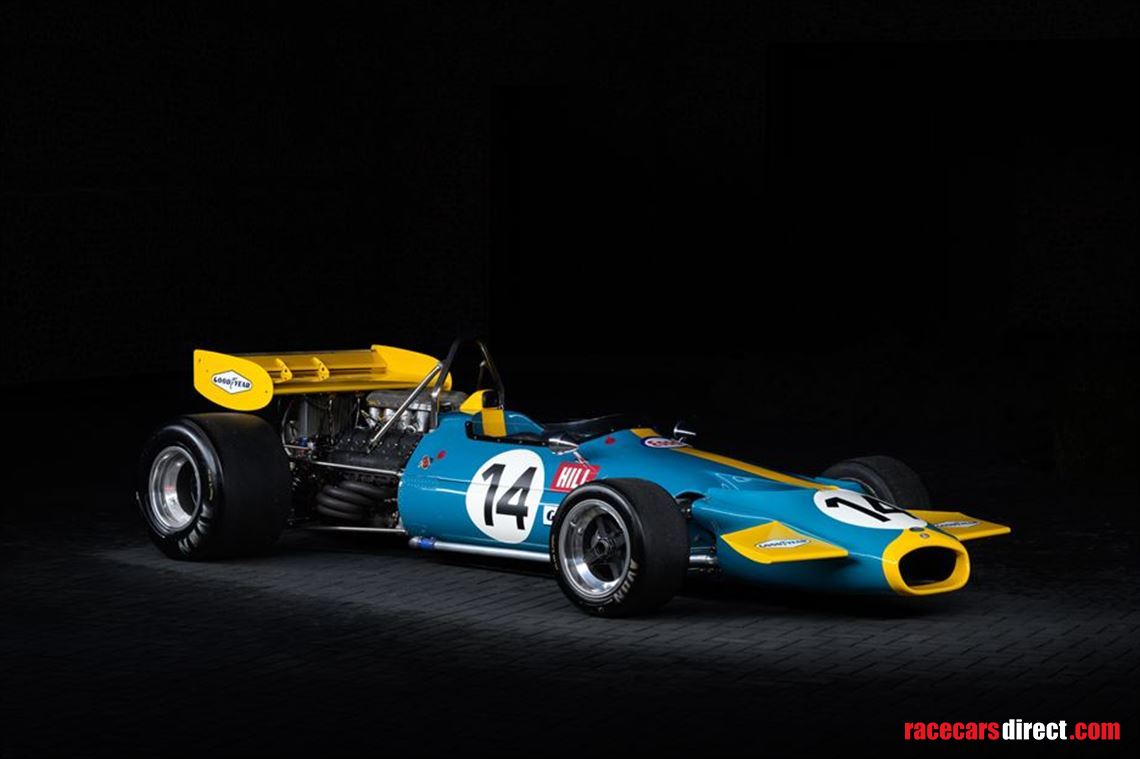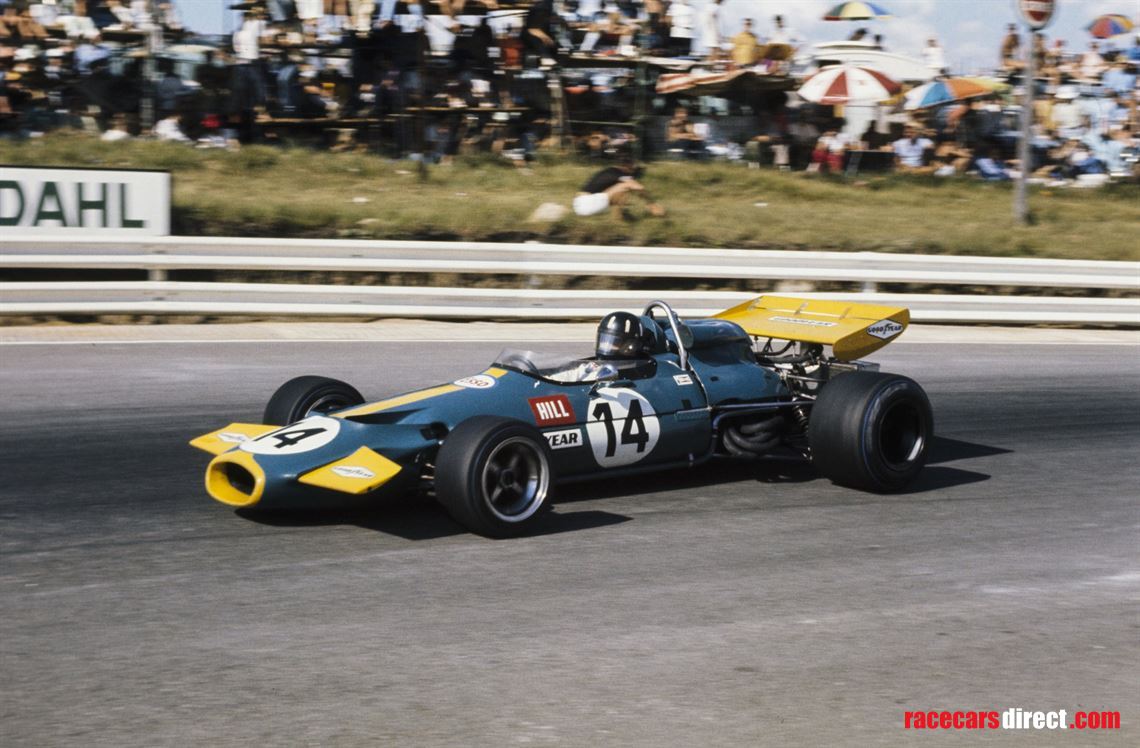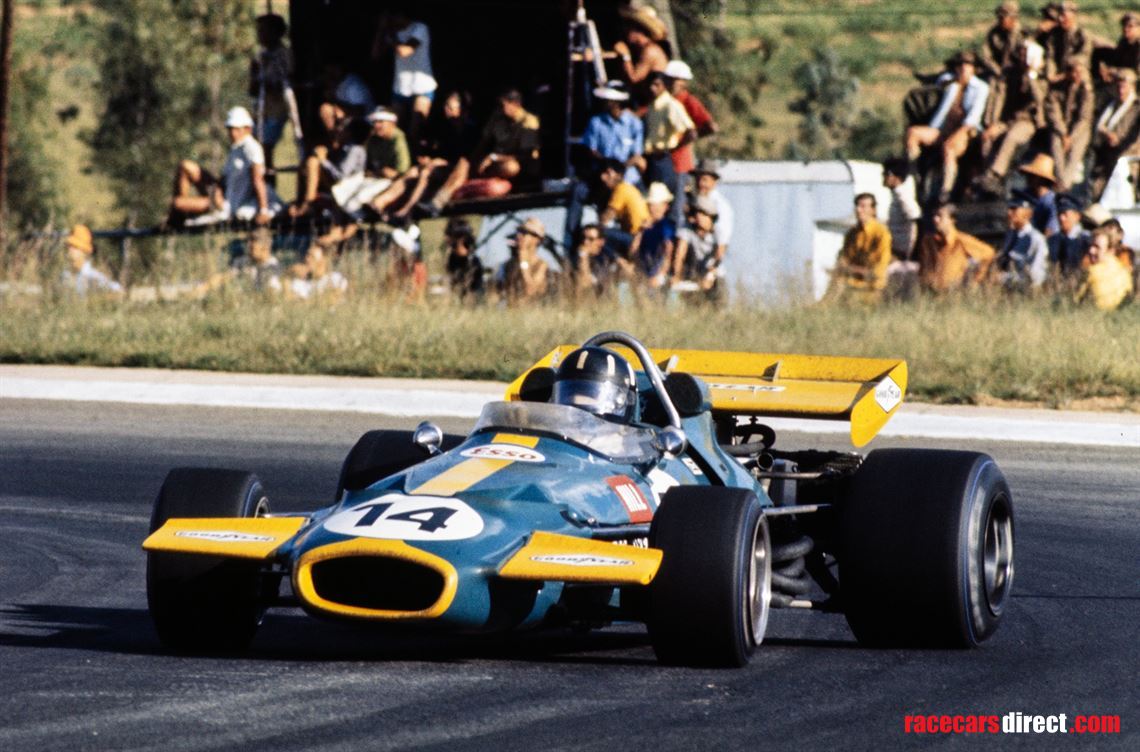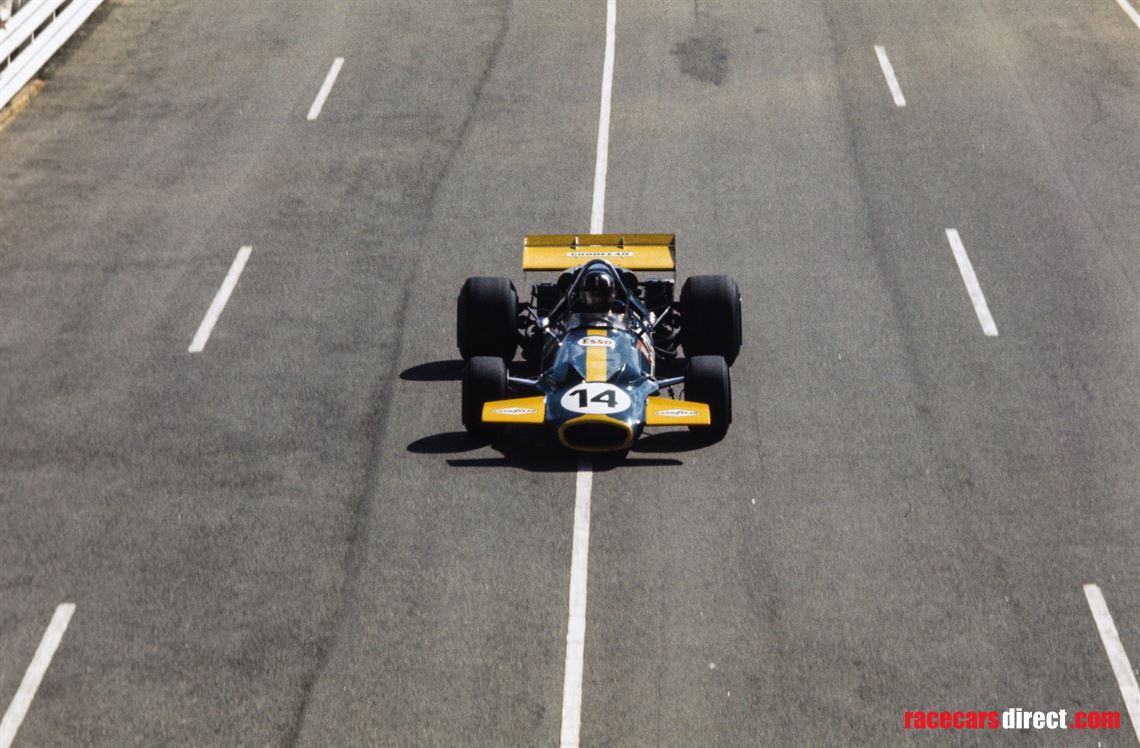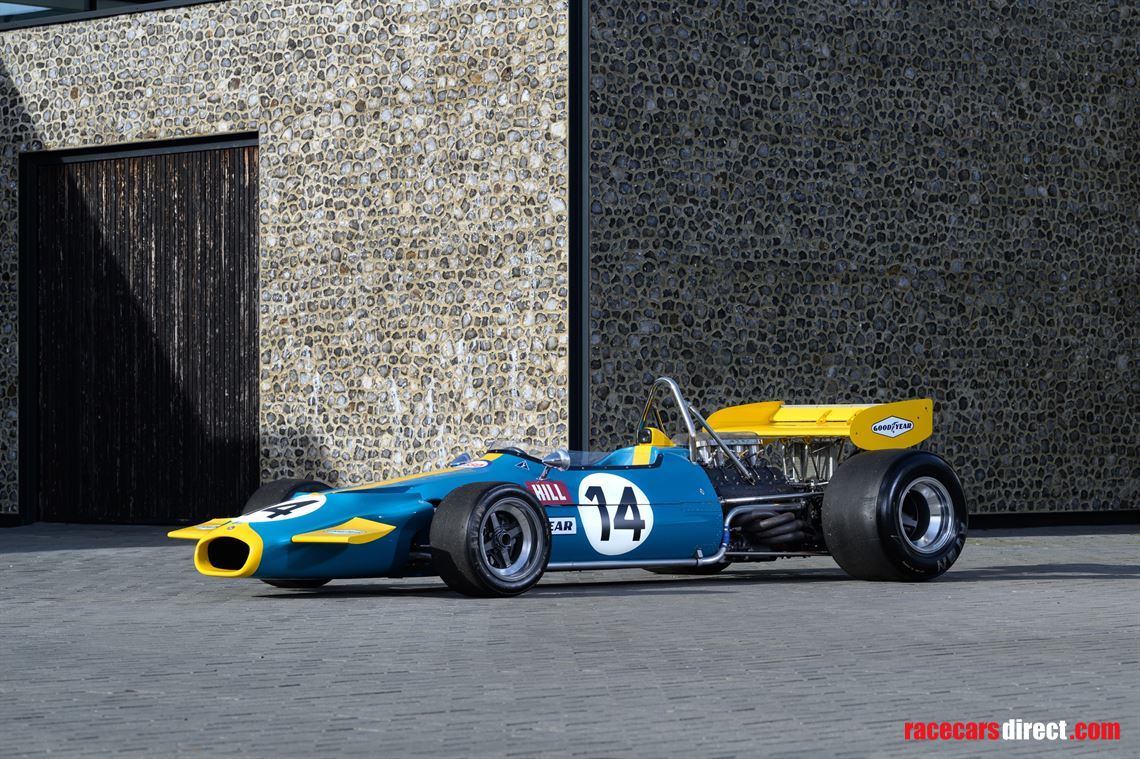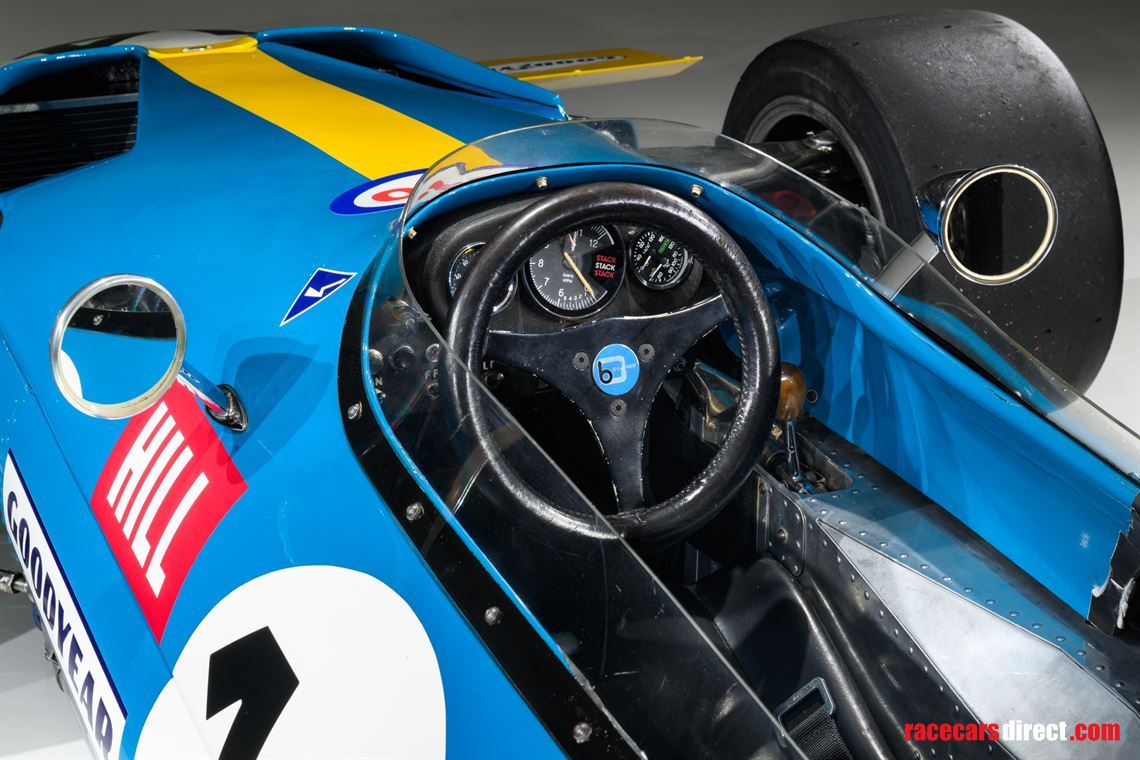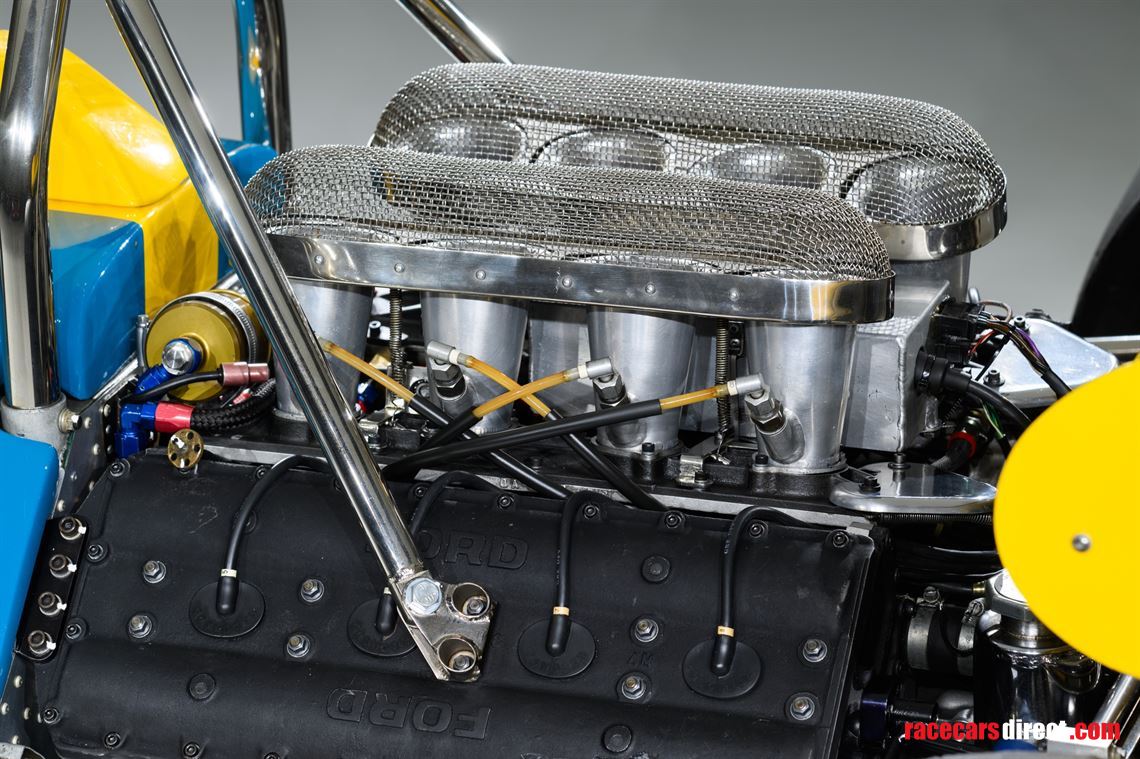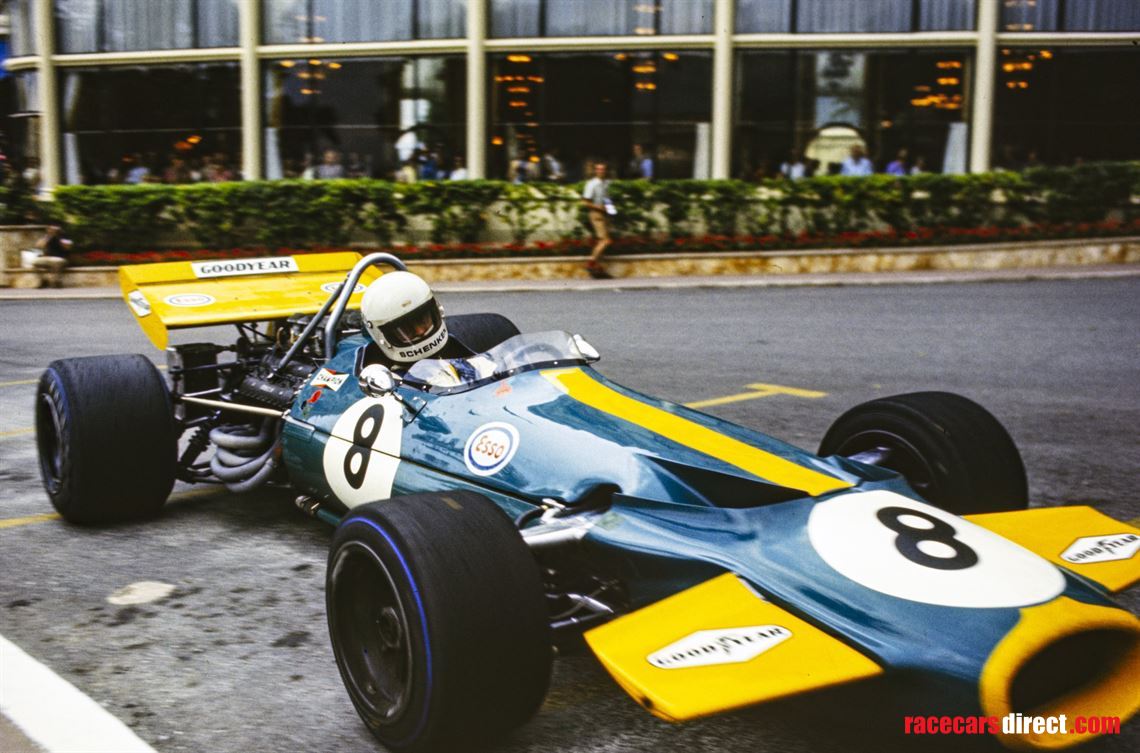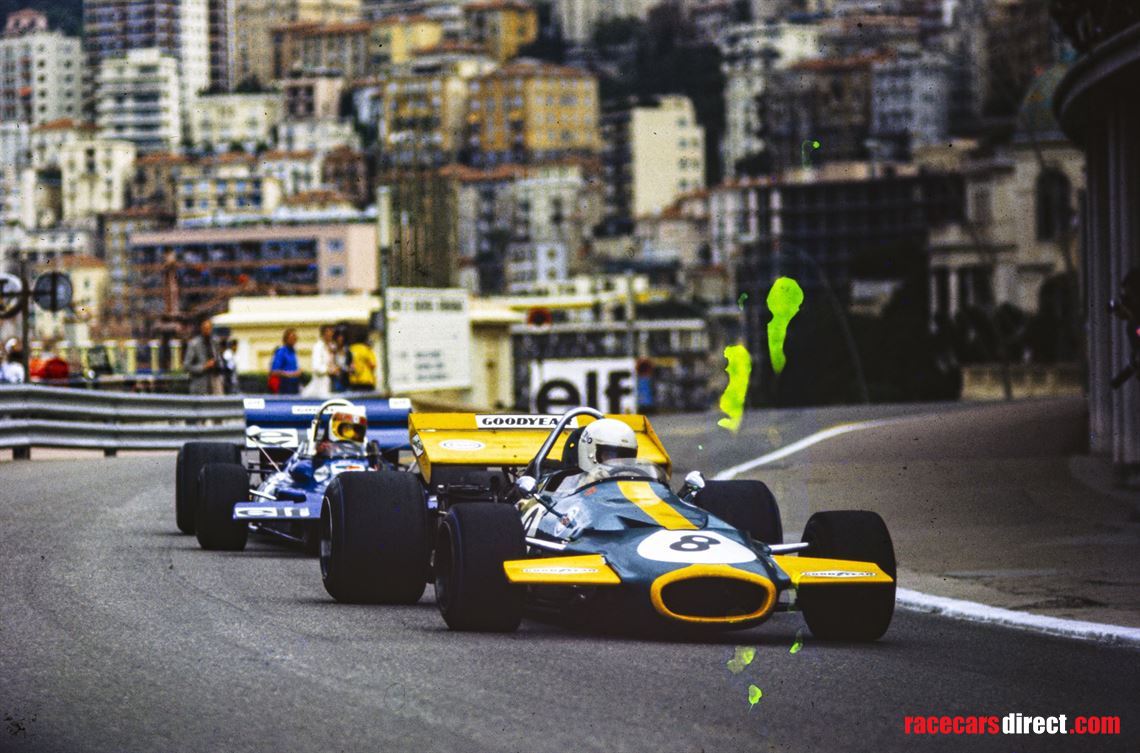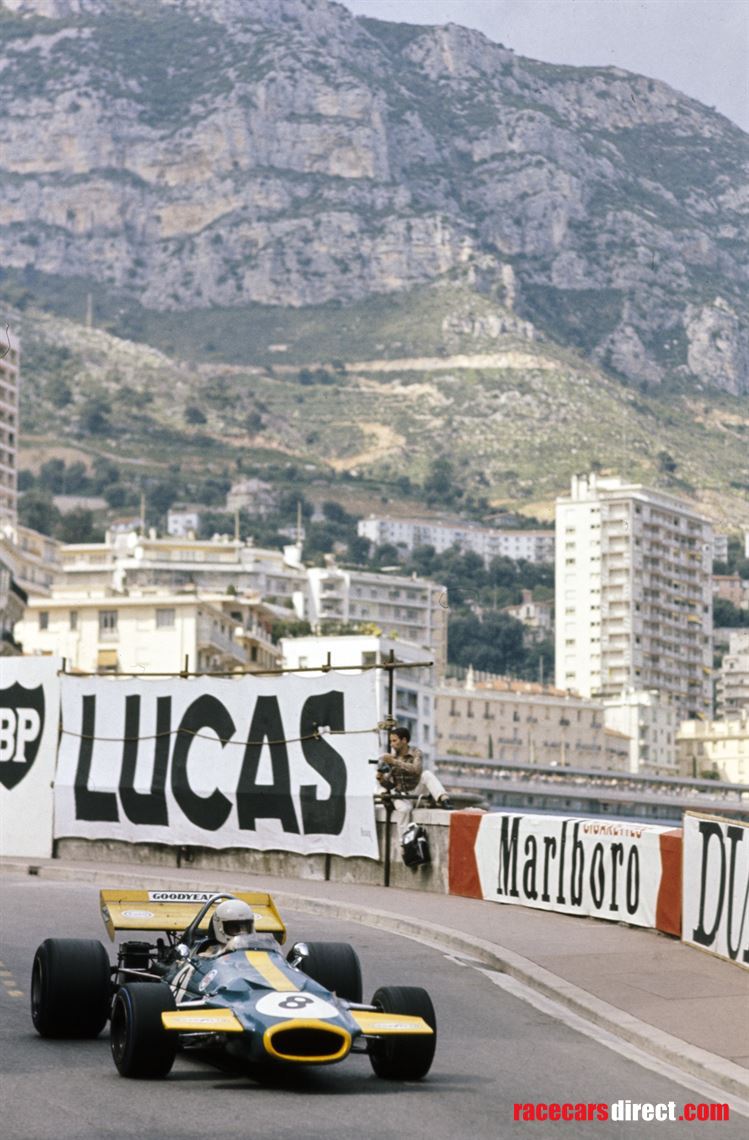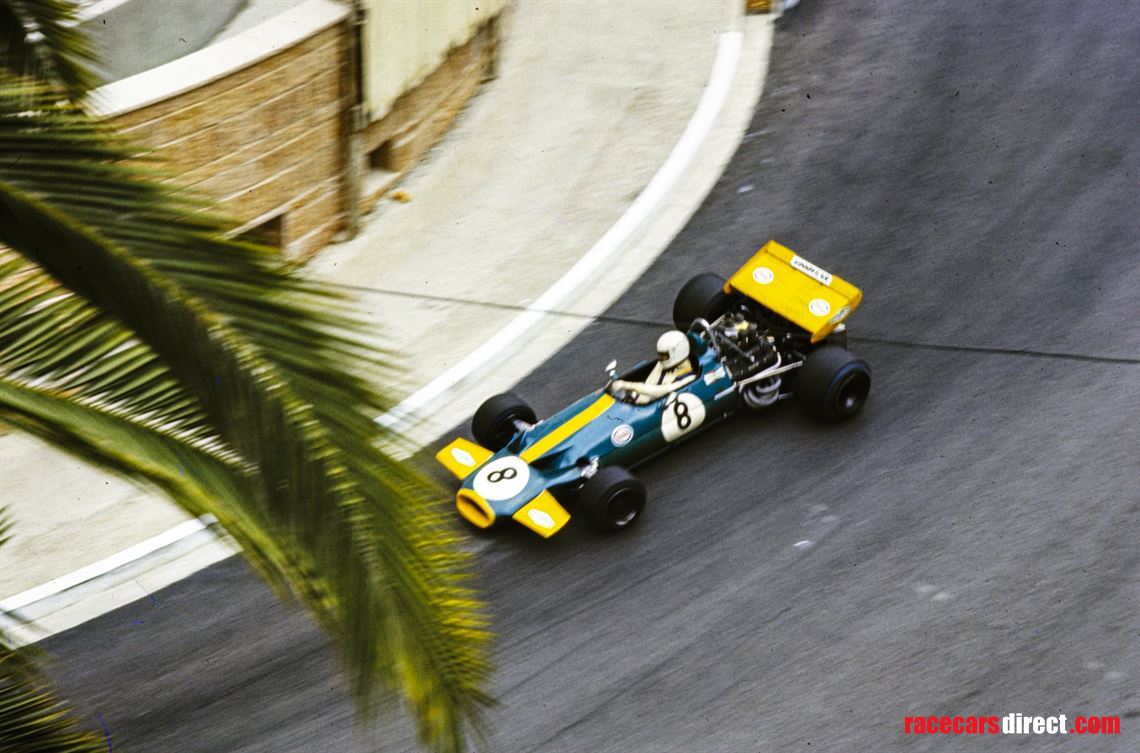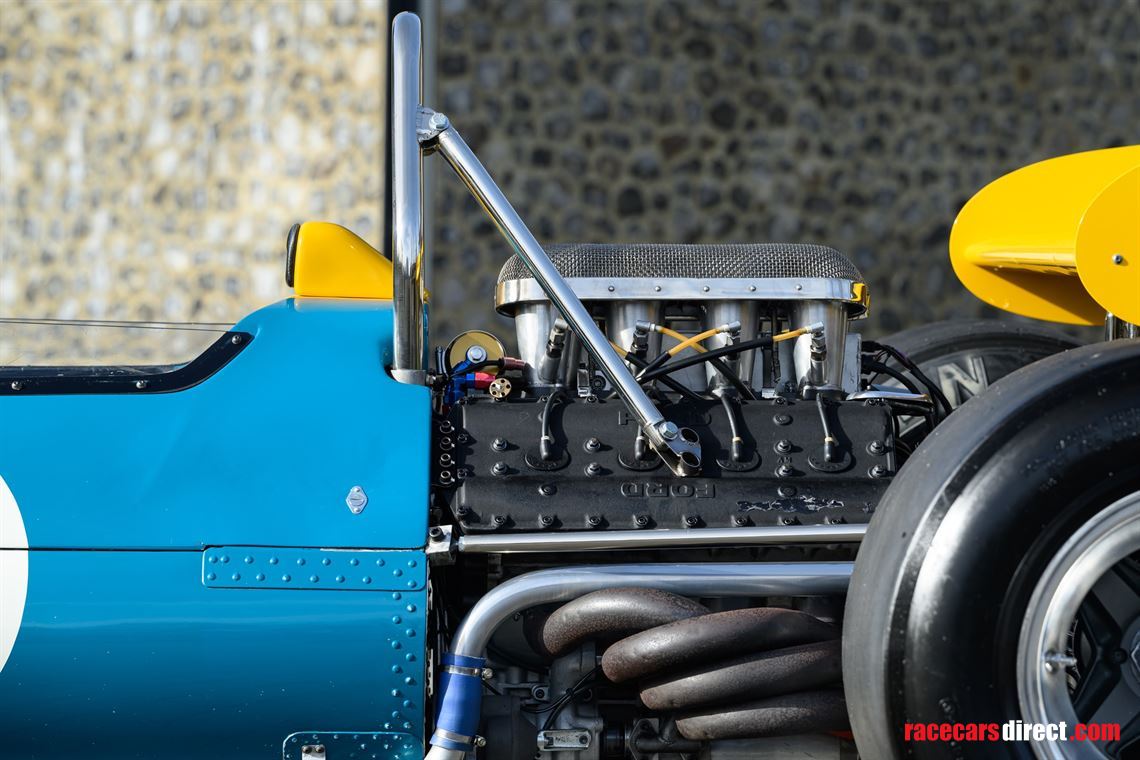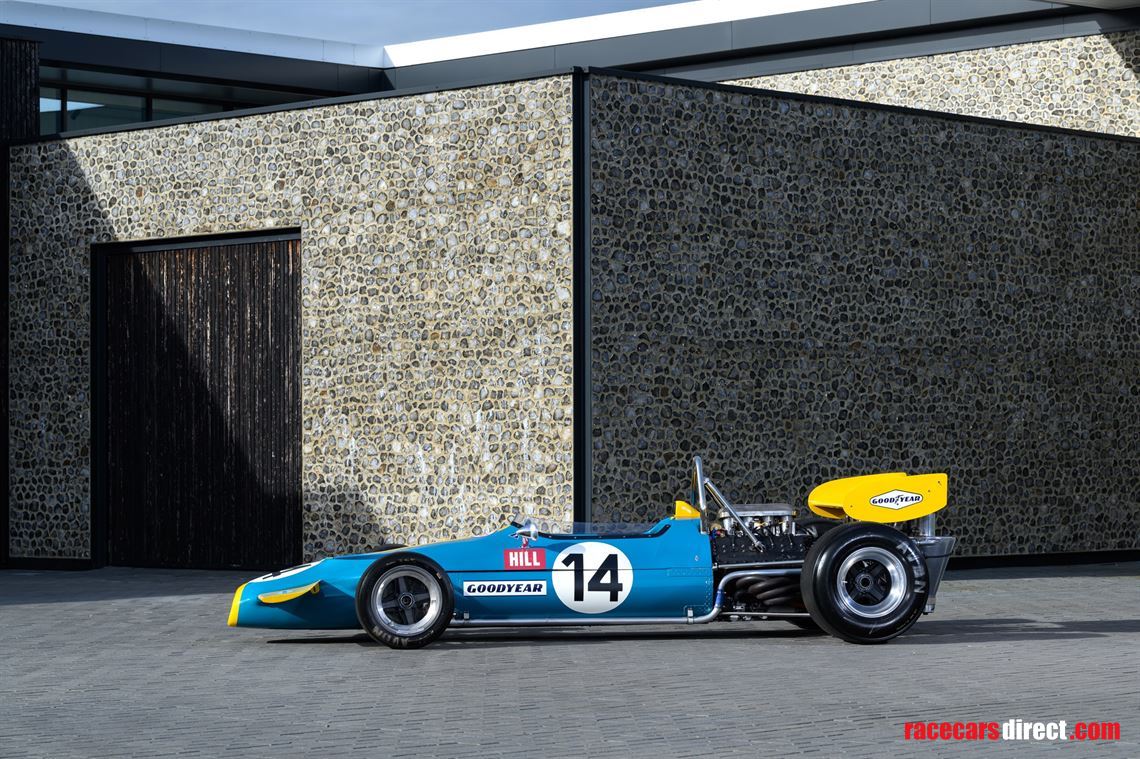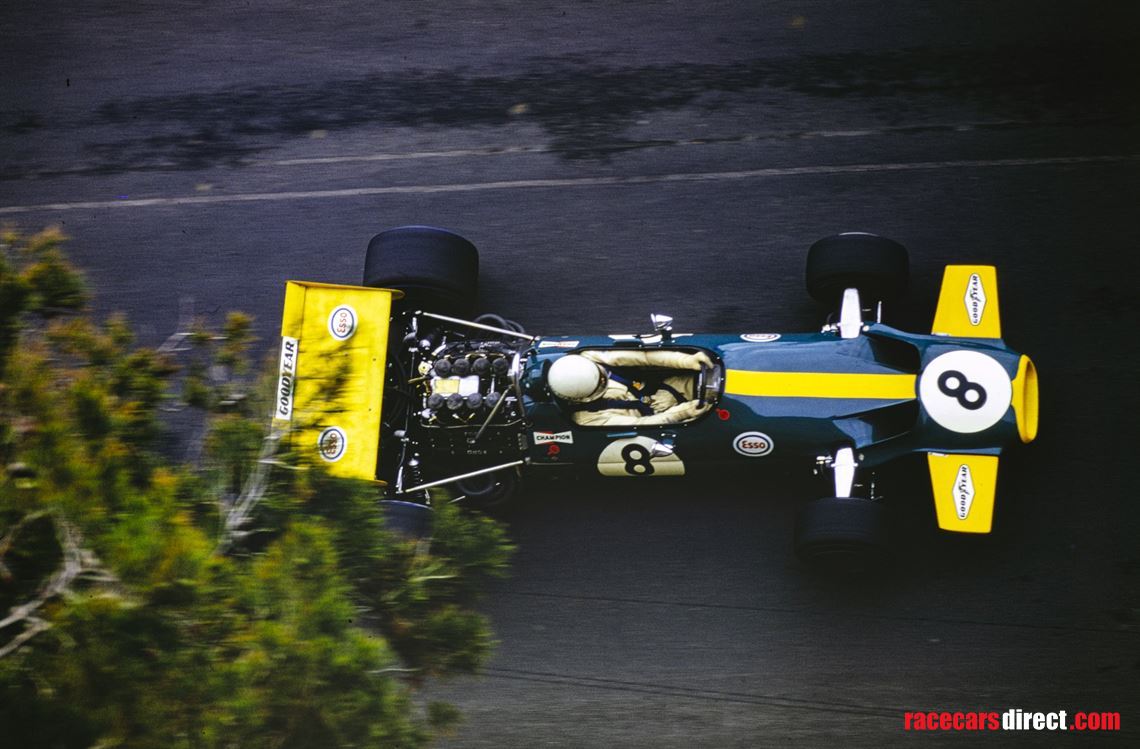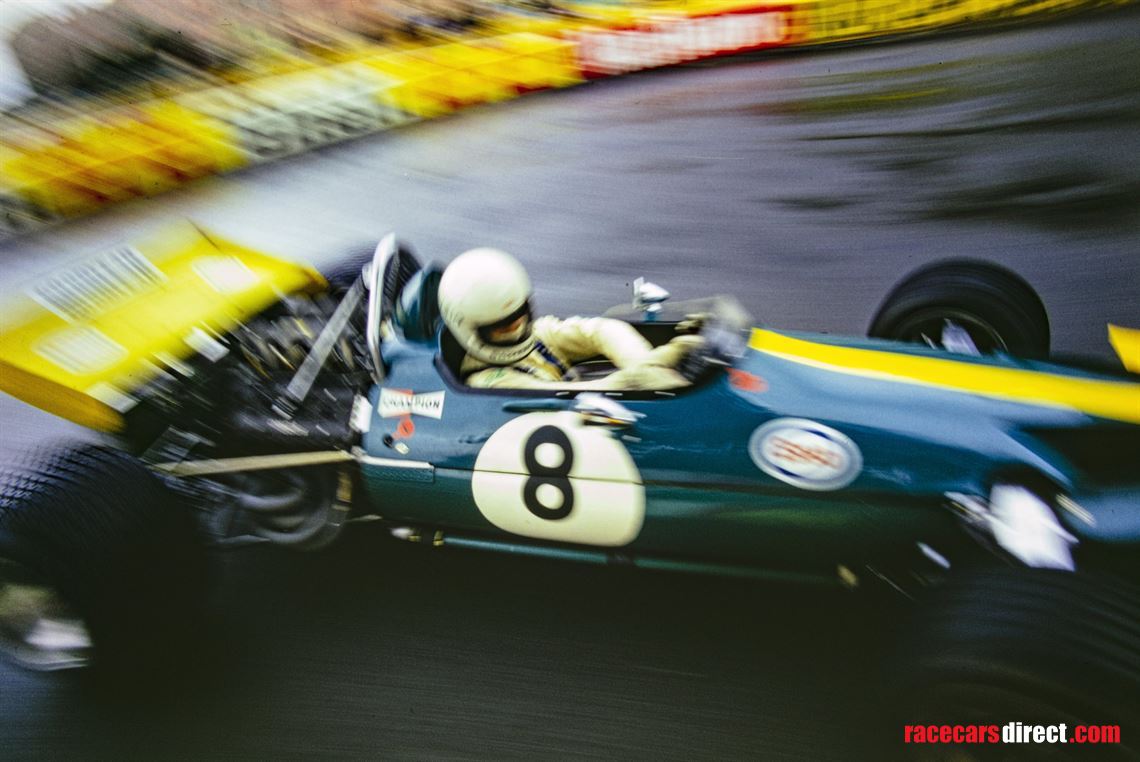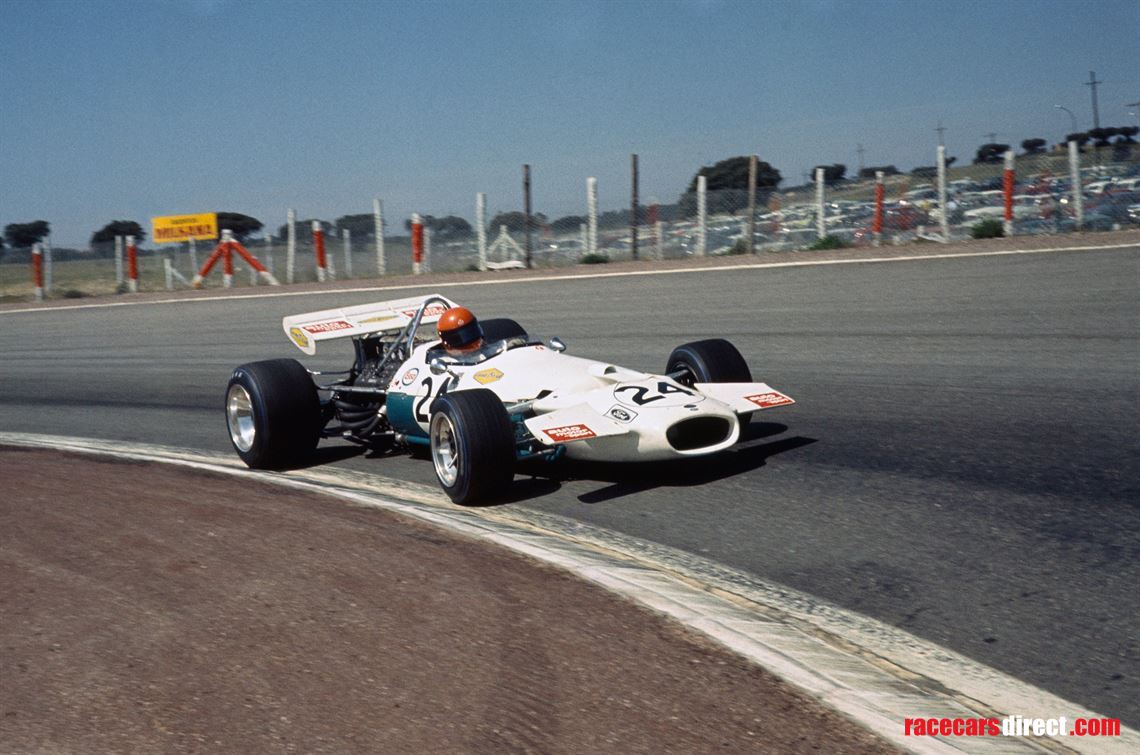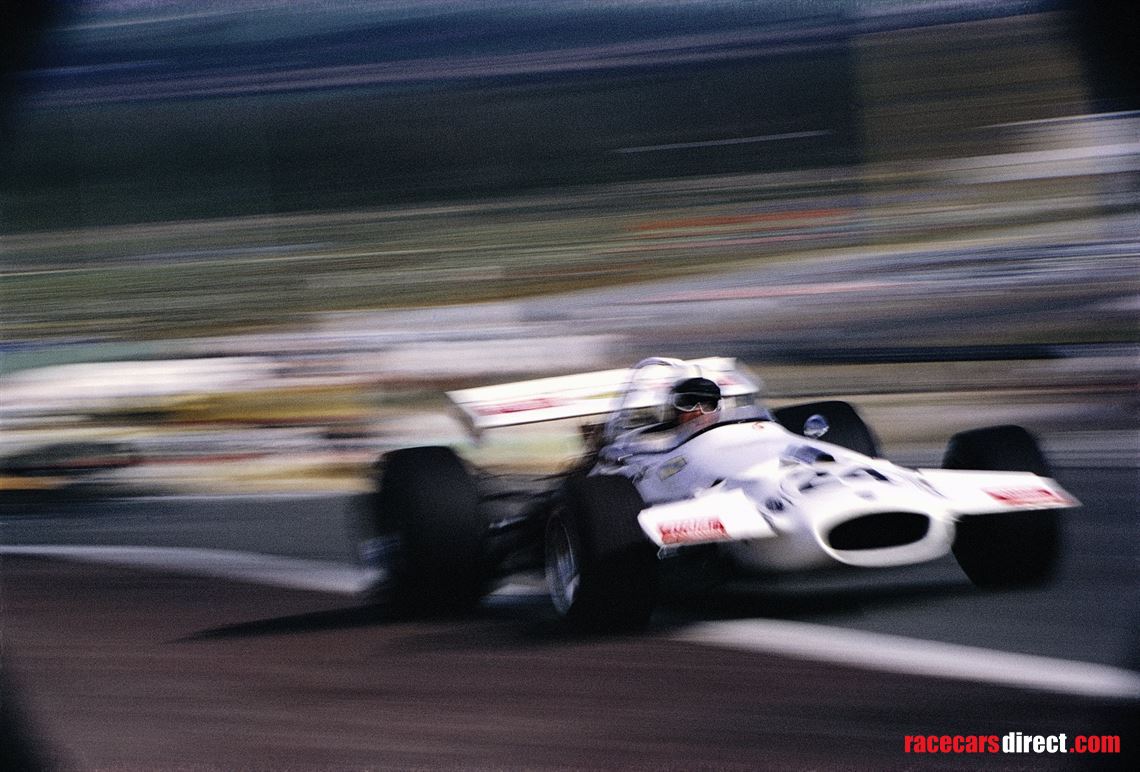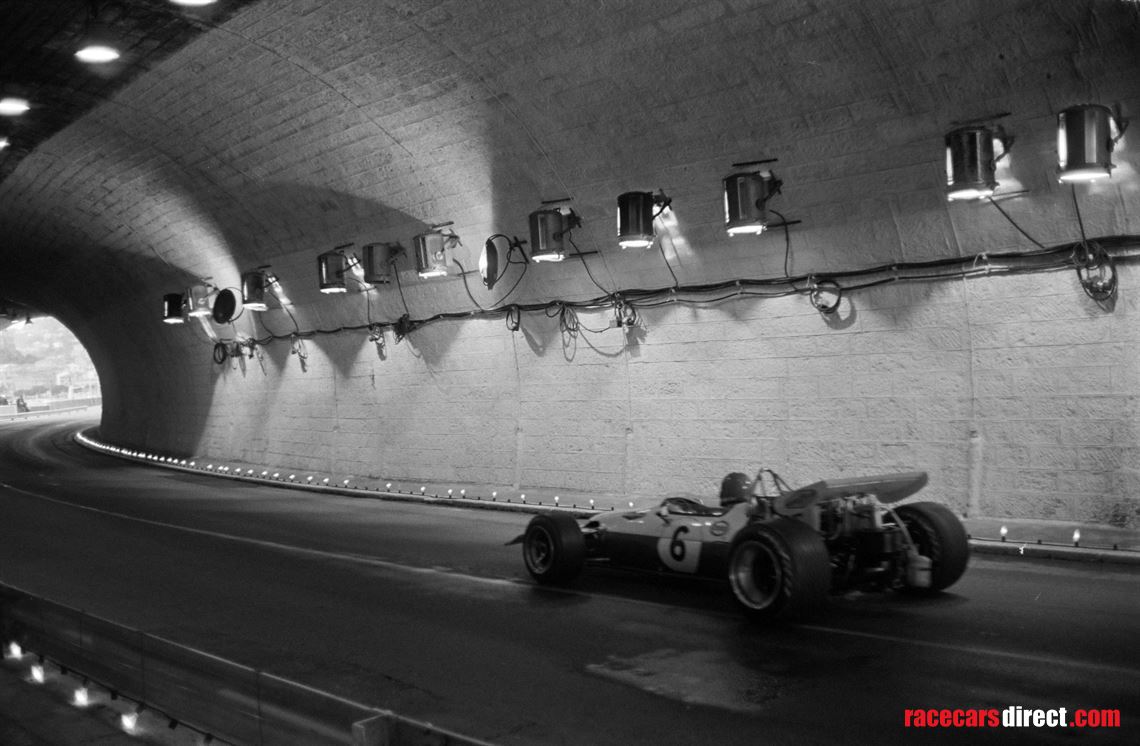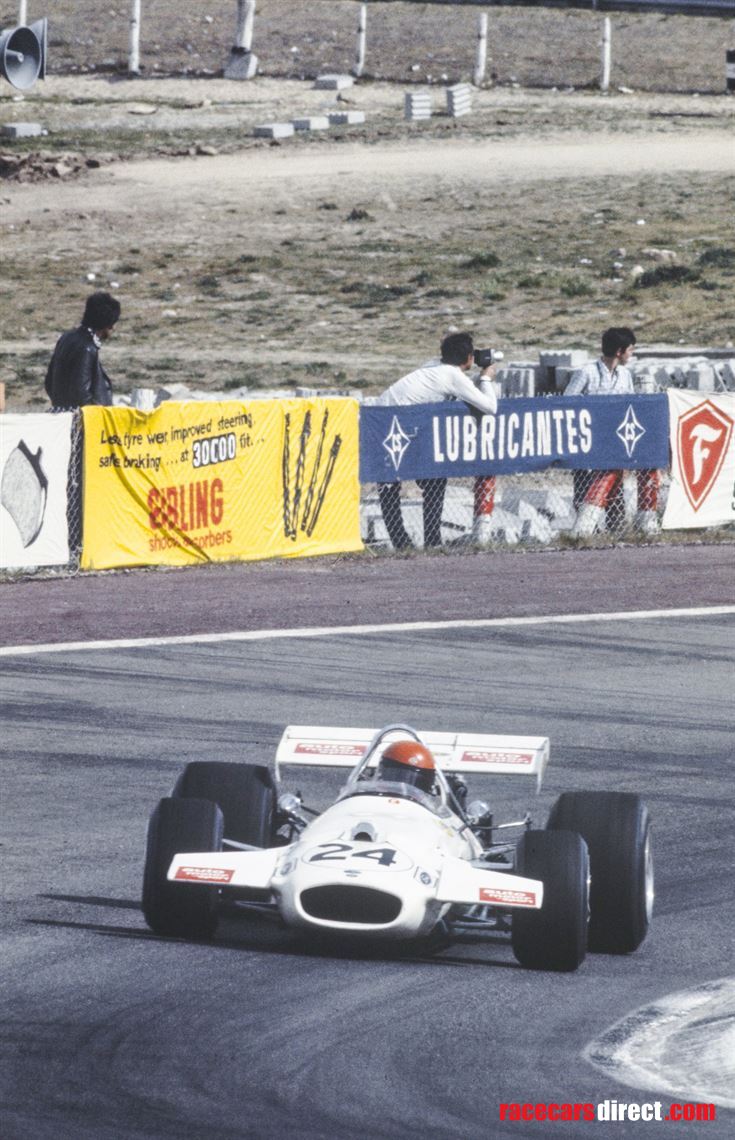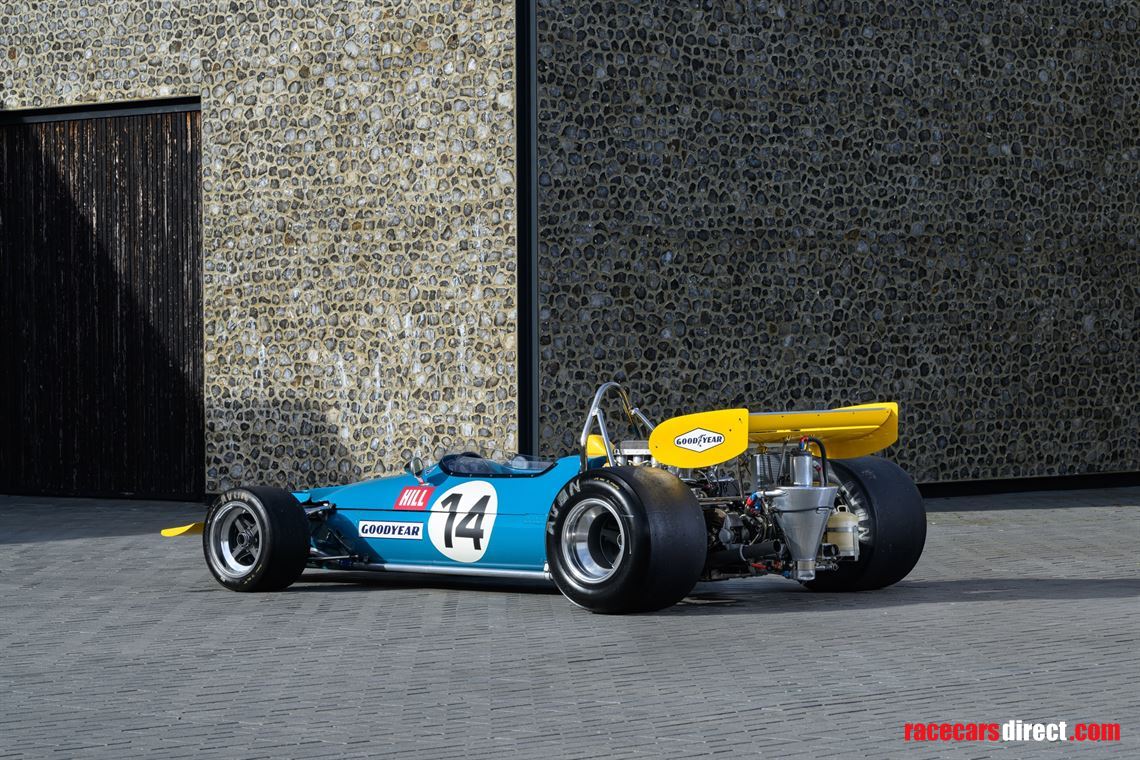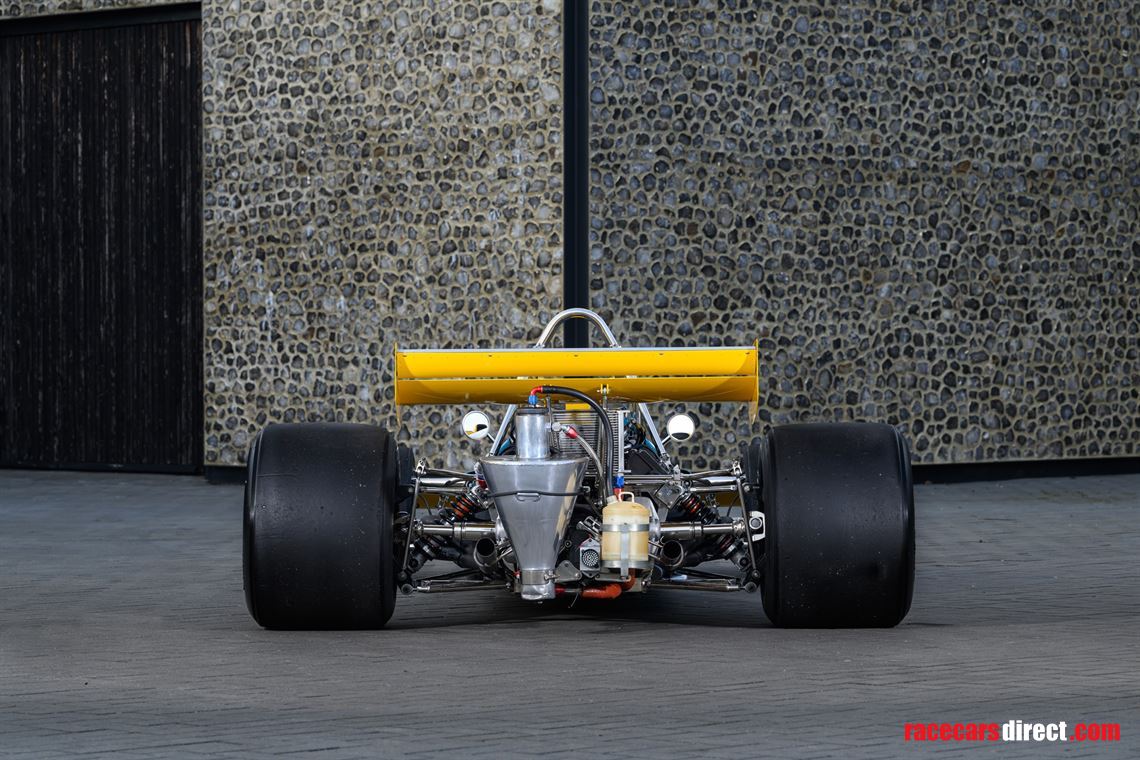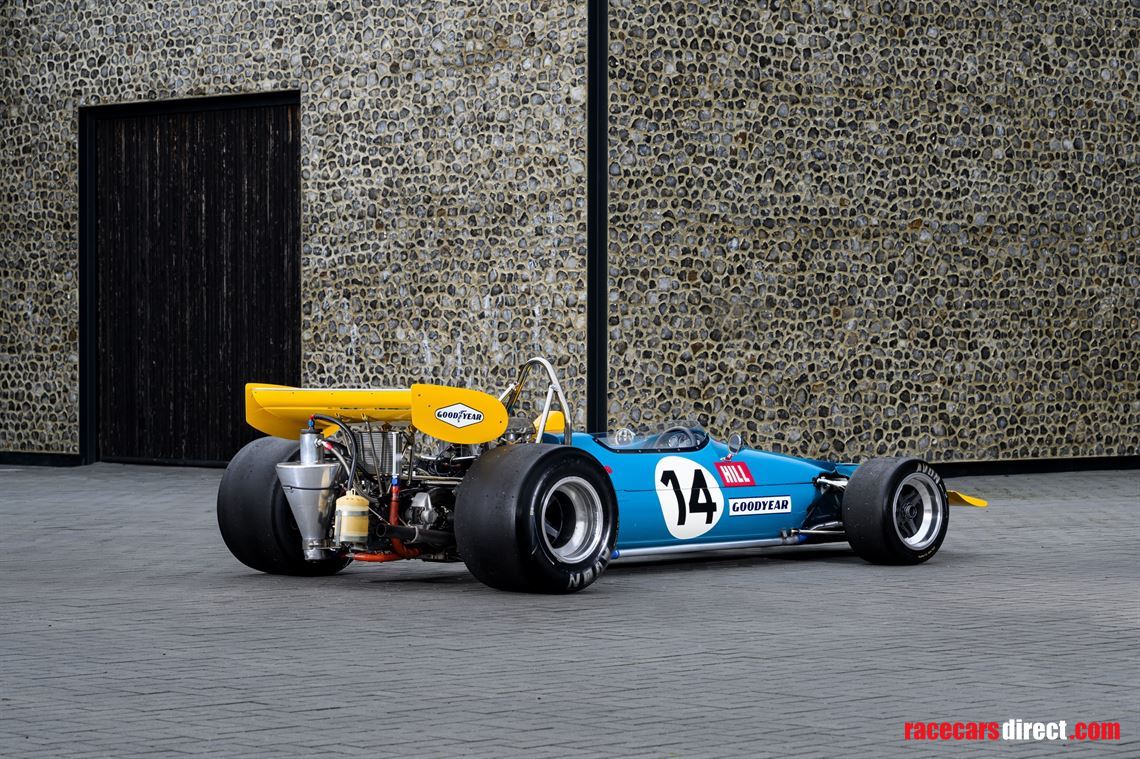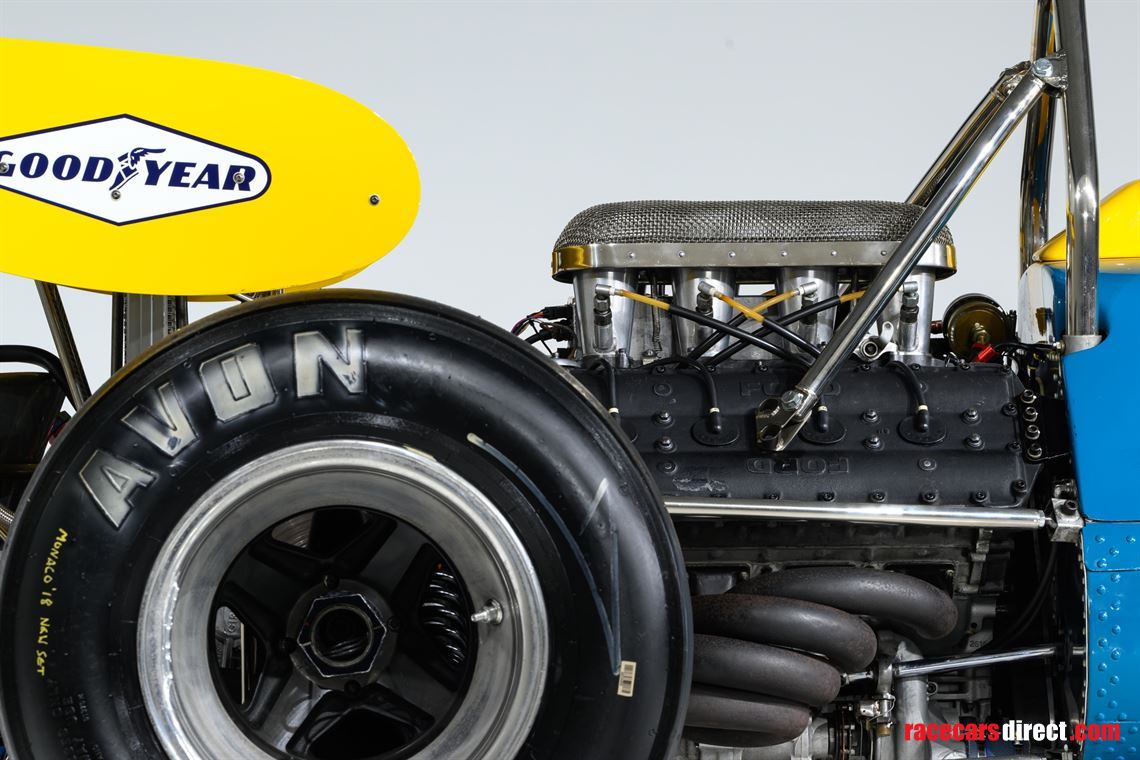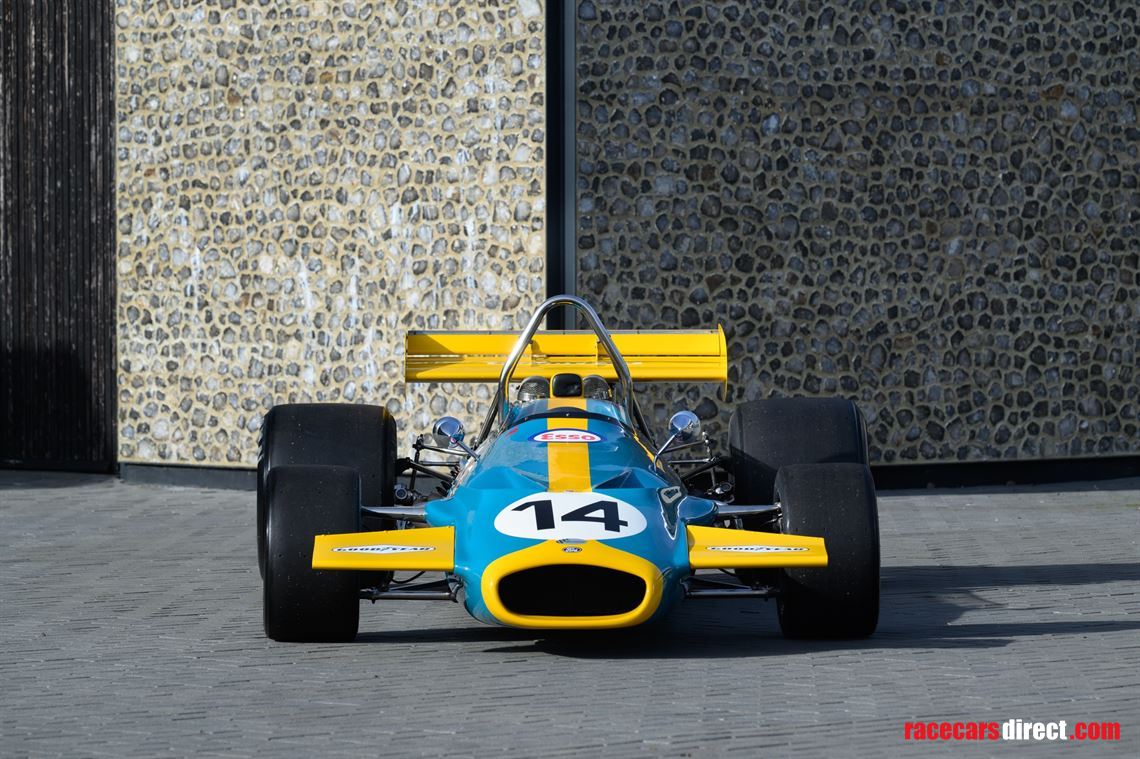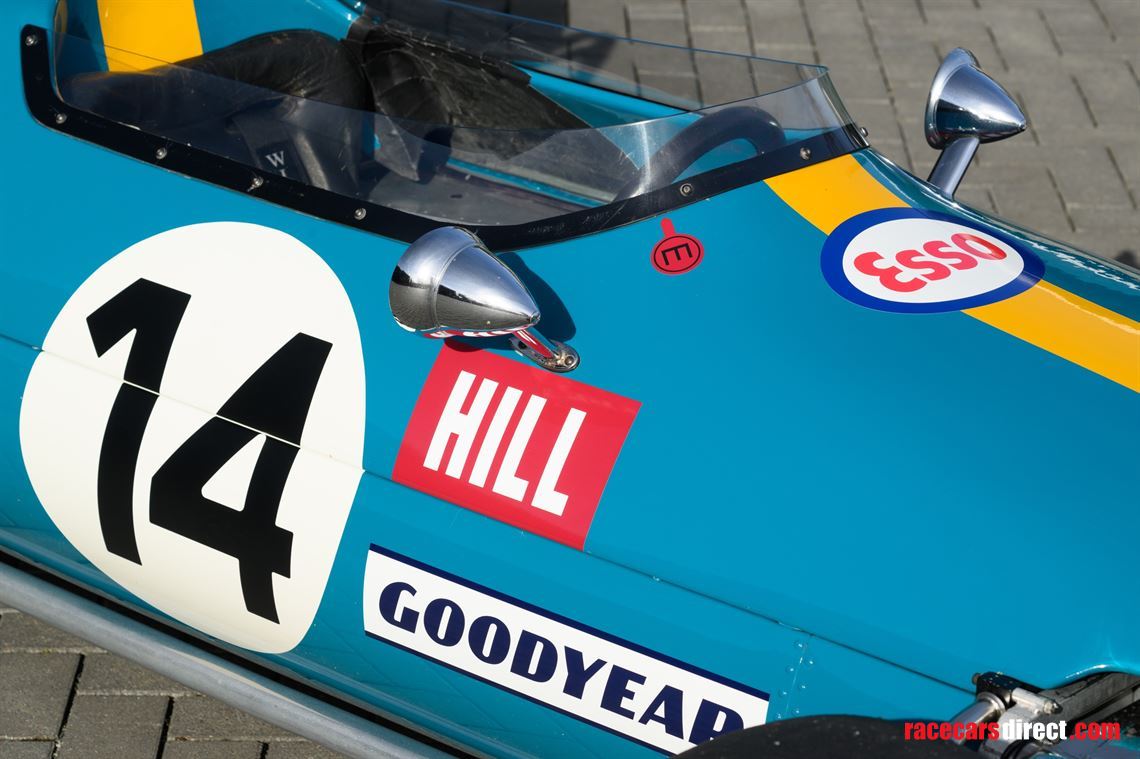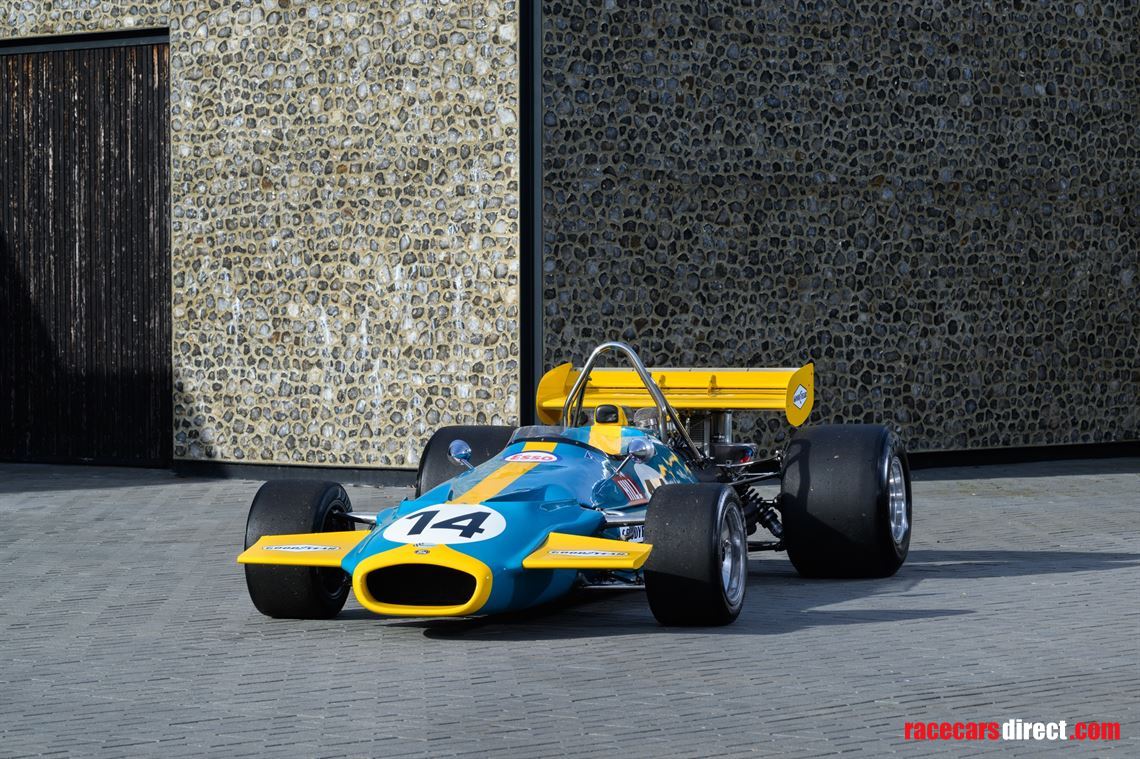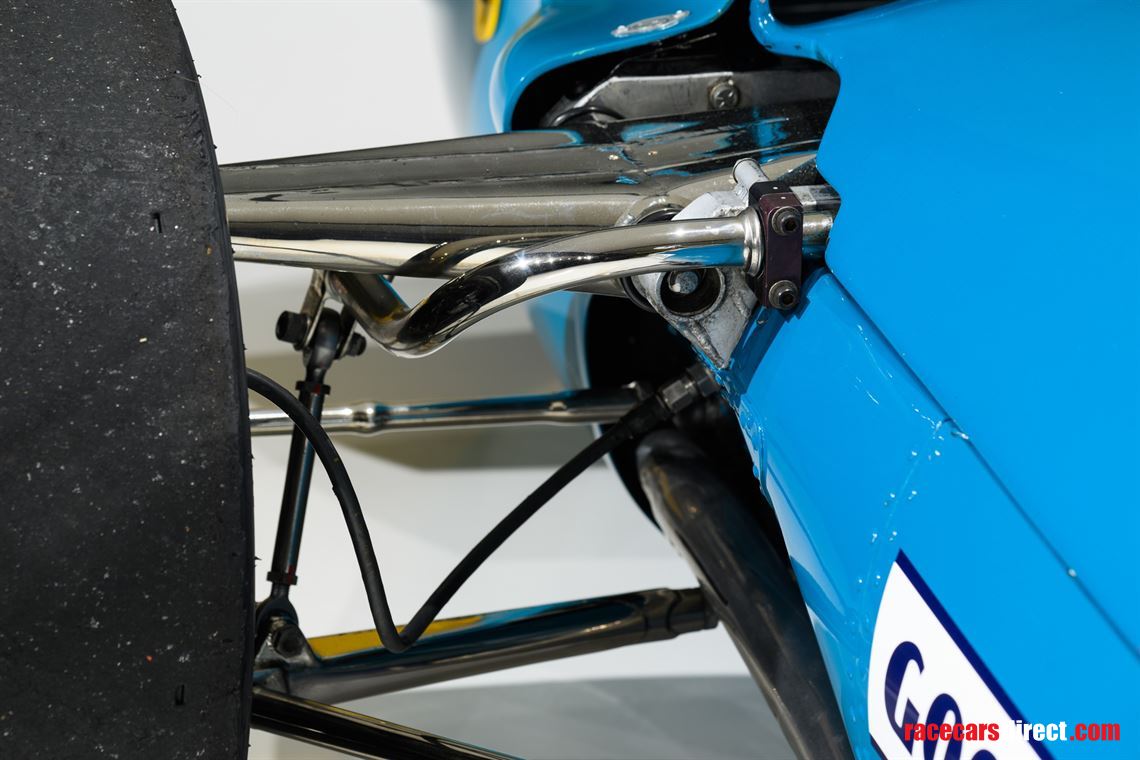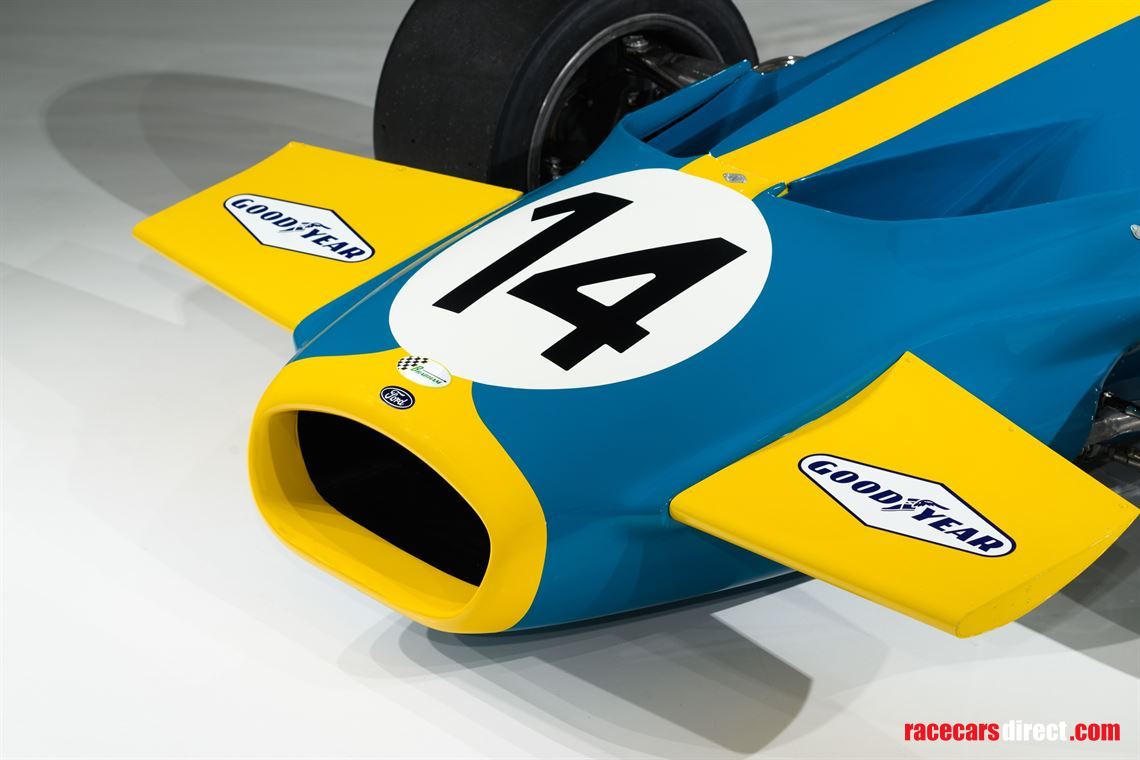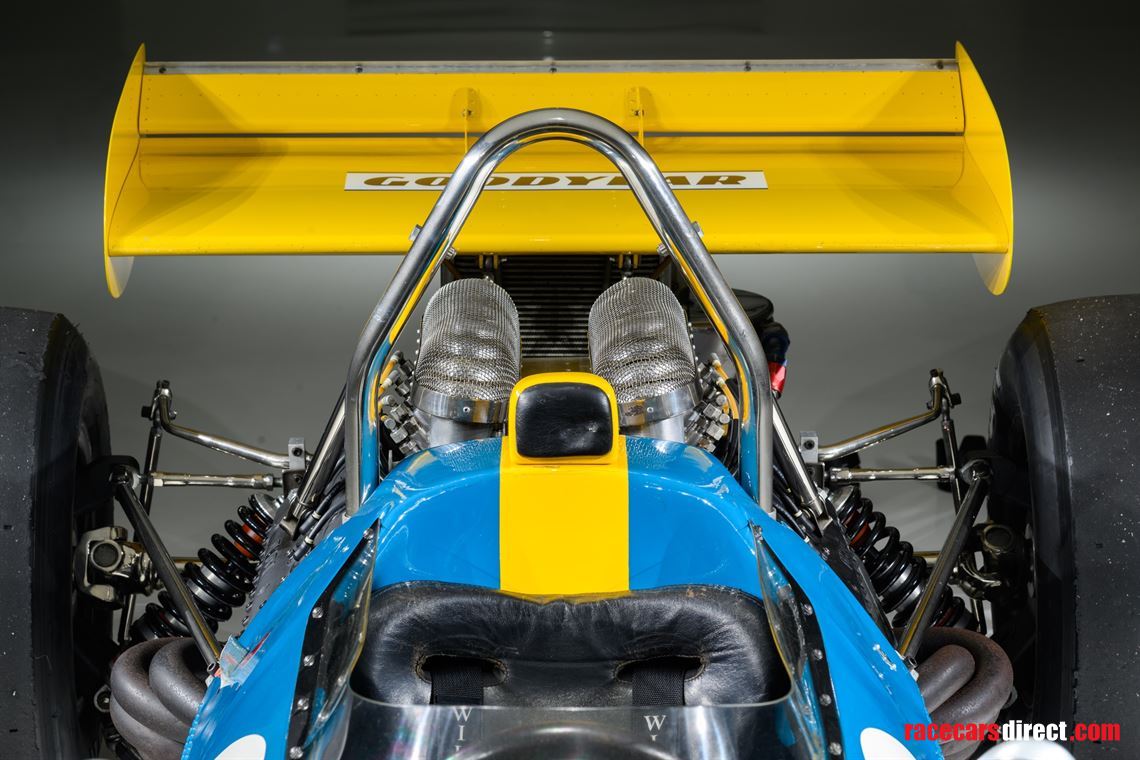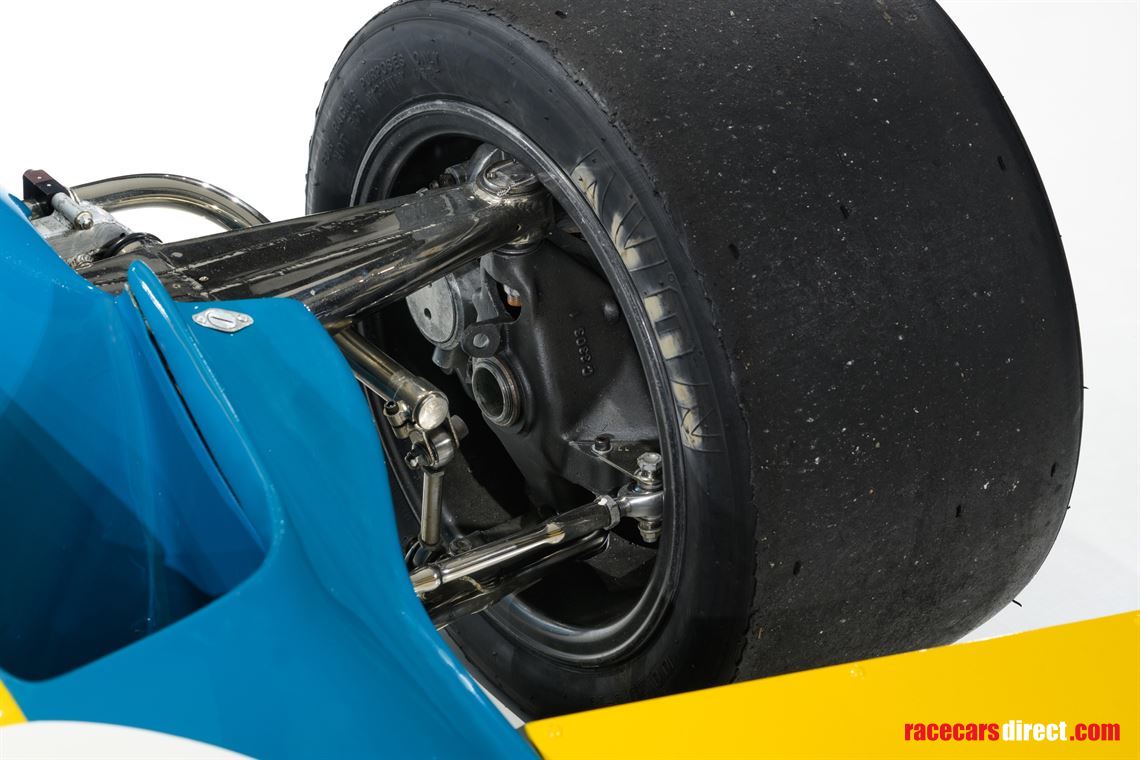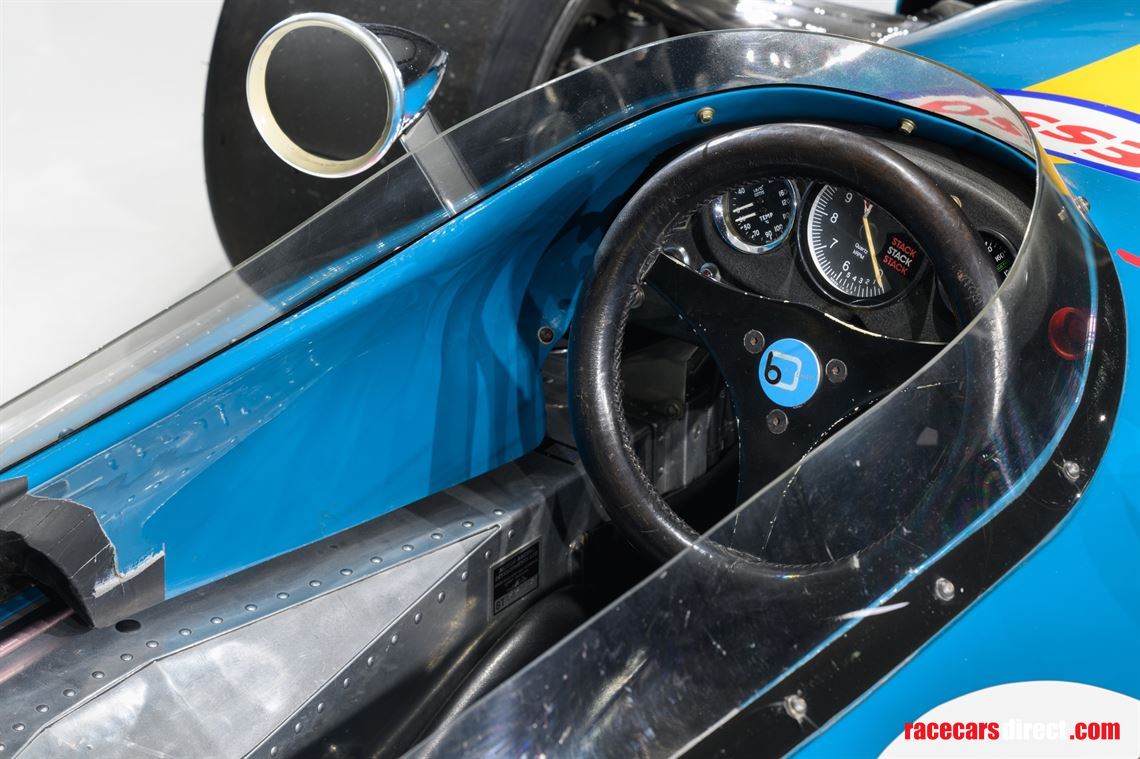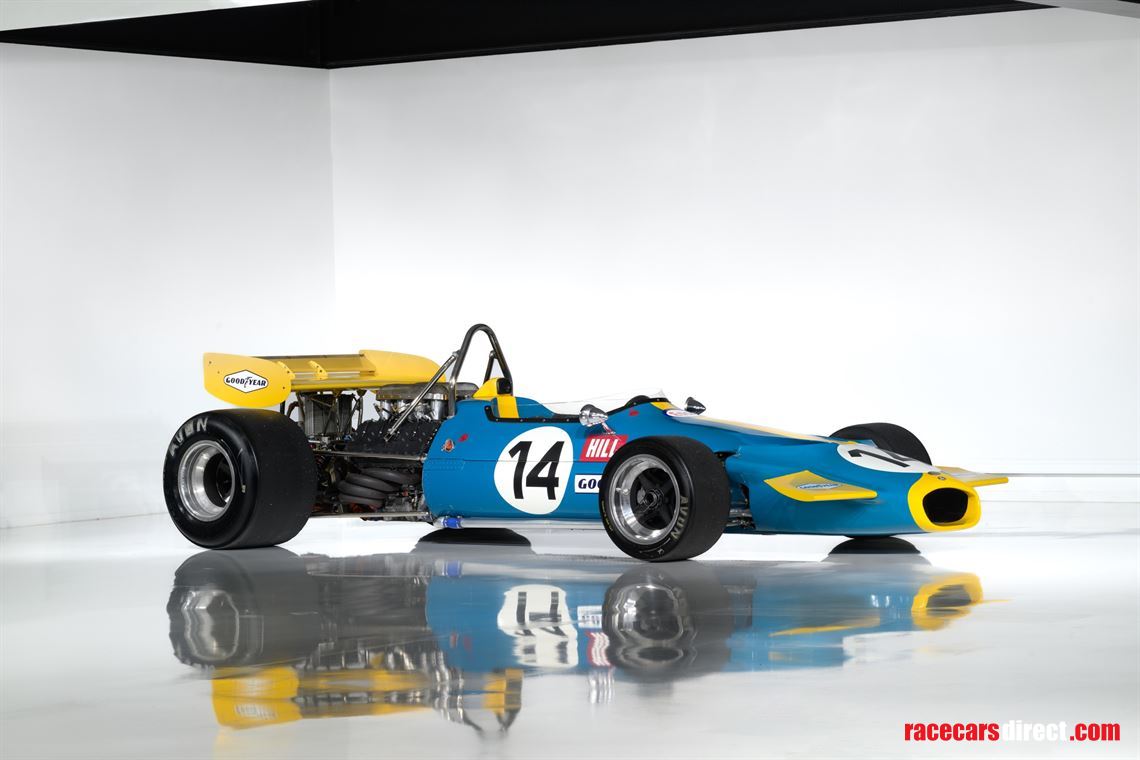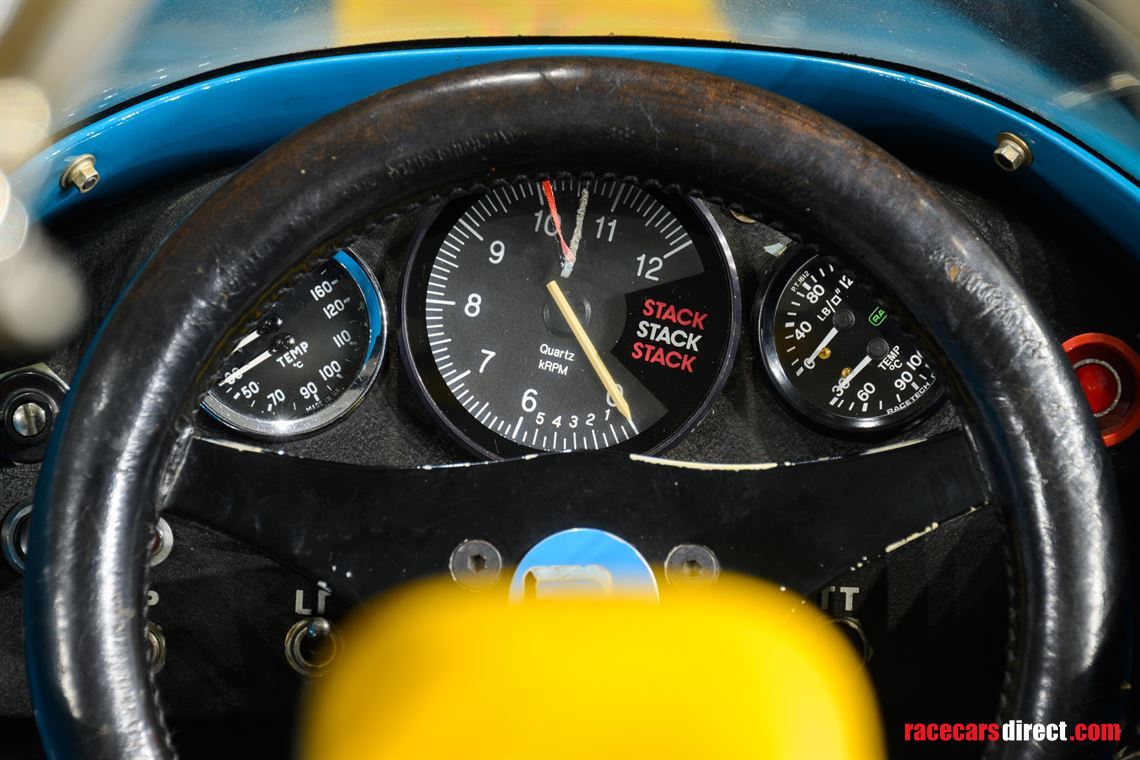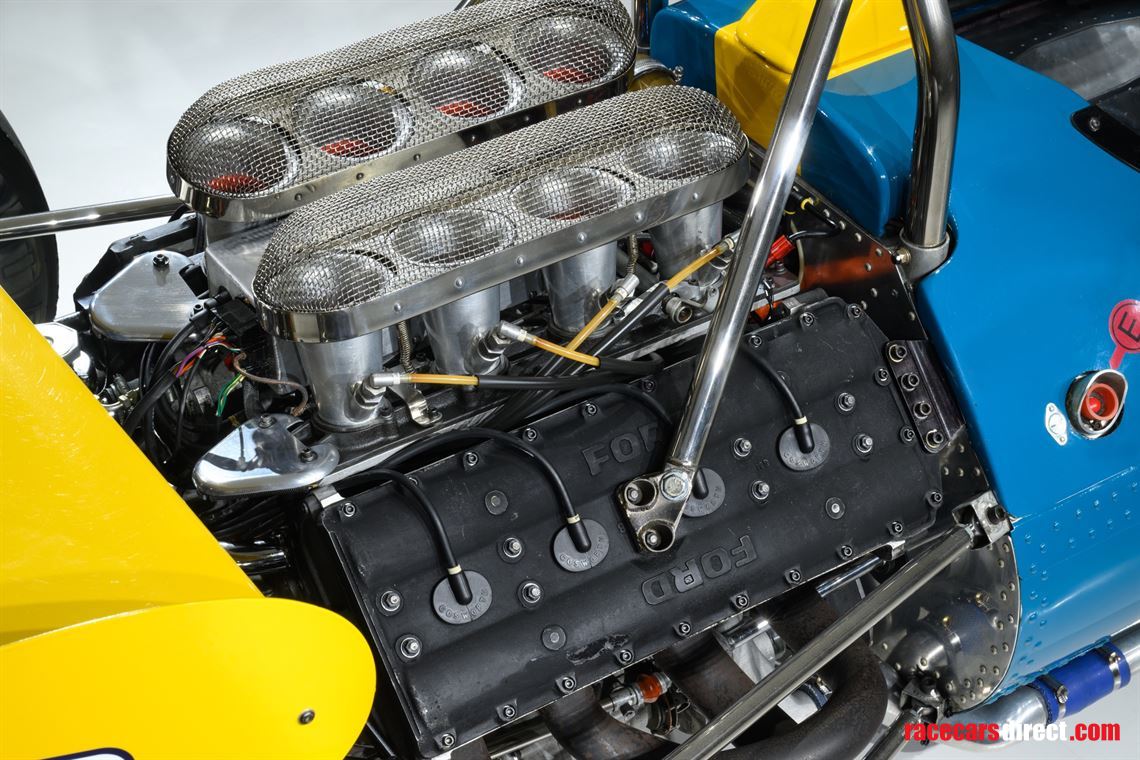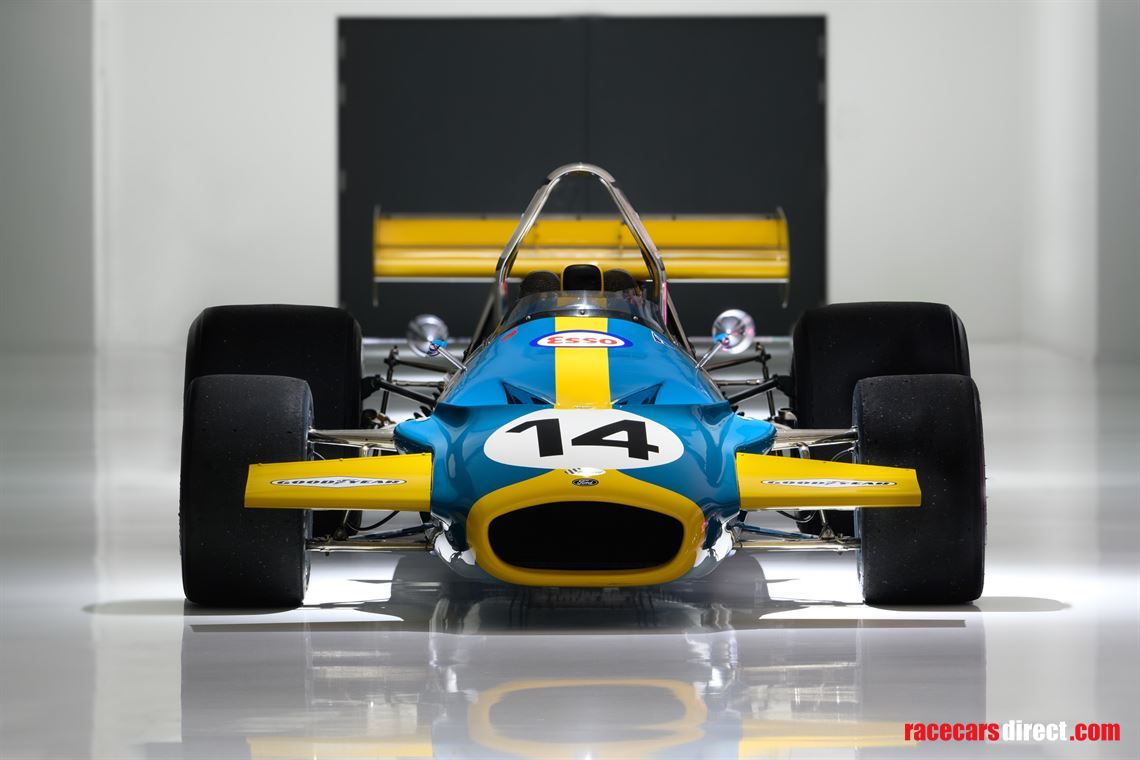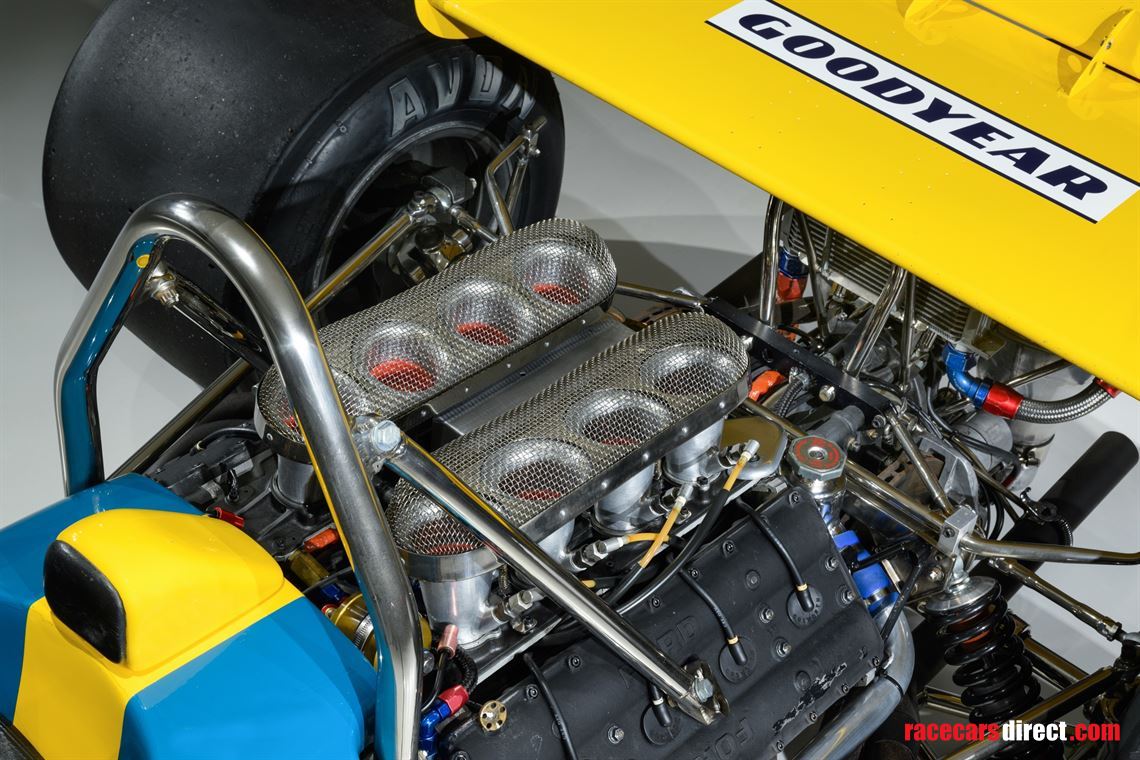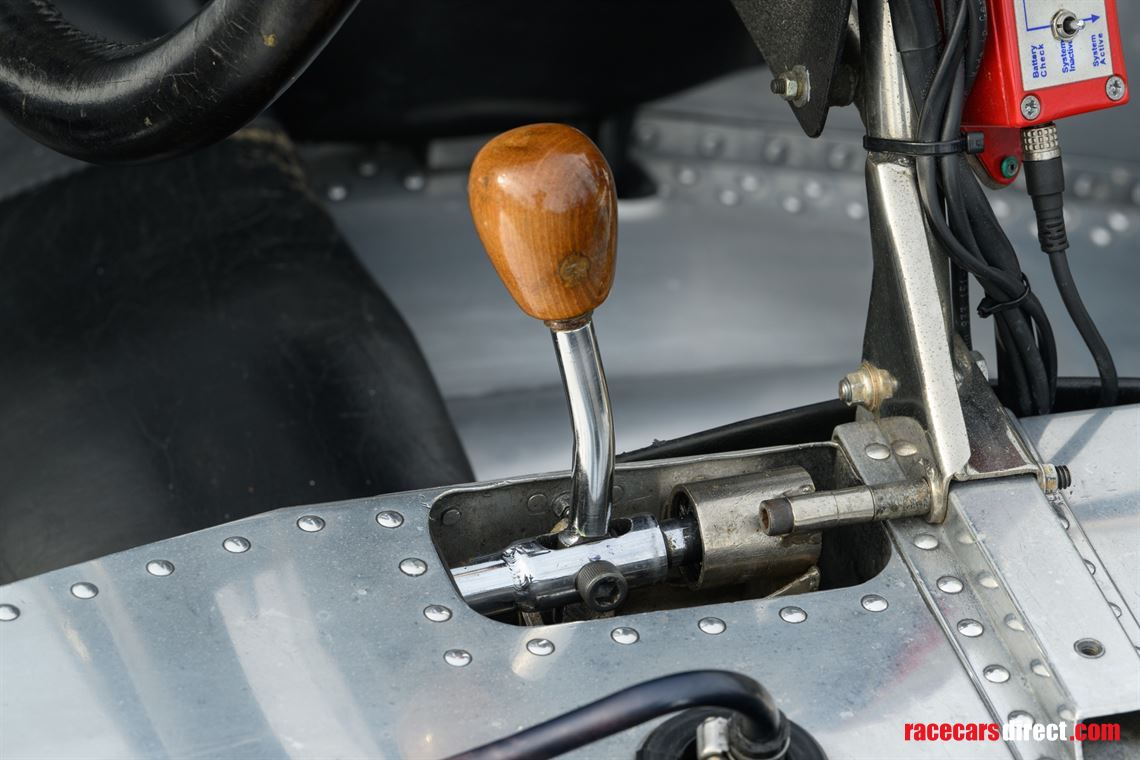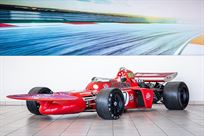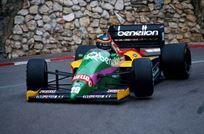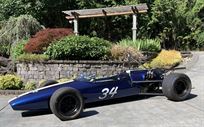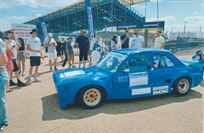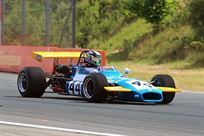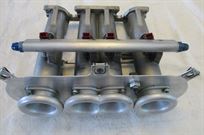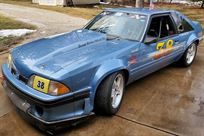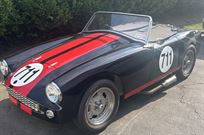Race Cars
£ POR
1970 Brabham BT33 - Cosworth DFV F1
Description:
1970 Brabham BT33 - Cosworth DFV (Formula 1)
With a significant grand prix history and a former driver roster featuring the likes of Jack Brabham, Graham Hill, and Carlos Reutemann, BT33/1 remains a welcome entrant to the prestigious Monaco Historic Grand Prix - an event it has won an extraordinary four times to date.
Overview
Participant in ten Formula One Grand Prix between 1970 and 1971
First Brabham Grand Prix car with an aluminium monocoque chassis
World Championship contender during the 1970 season
Last Brabham Grand Prix car developed by Jack Brabham and Ron Tauranac
Powered by Cosworth’s famous 3.0 litre DFV
Driven in period by Jack Brabham, Graham Hill, Rolf Stommelen, Tim Schenken and Carlos Reutemann
Best result of 5th in the 1970 Belgium Grand Prix at Spa Francorchamps in the hands of Rolf Stommelen
10th place finish at Monaco in 1971 with Tim Schenken
A four-time Monaco Historic Grand Prix winner in current, long-term ownership
Eligible for the Monaco Historic Grand Prix, Masters Racing Legends and Monterey Motorsports Reunion
Accompanied by a commendable spares package and valid FIA Historic Technical Passport
Immaculately presented and professionally prepared by respected historic specialist, Sid Hoole, in the UK
Available for viewing at our showrooms in Petersfield, Hampshire in the south of England
Background
Jack Brabham remains the only driver to win the Formula 1 World Championship with a car bearing his own name. Racing the Brabham BT33, he came frustratingly close to adding another title, his fourth, to his remarkable tally. Designed with his long-term partner Ron Tauranac, the BT33 was the first Brabham Grand Prix car sporting a sheet-aluminium monocoque. Retaining the classic cigar-shape, it represents the end of an era in Grand Prix racing.
Having previously successfully raced Coopers, Jack Brabham established Motor Racing Developments with fellow Australian Ron Tauranac during the early 1960s. The abbreviation 'MRD' had a bad connotation in French, so it was decided to produce cars under the Brabham moniker instead. Together, the two Aussies developed race-winning designs straight out of the box, culminating in back-to-back World Championship victories for Brabham himself in 1966 and then Denny Hulme in 1967.
It was a period of rapid development in the sport with the introduction of monocoque chassis, load-bearing engines and aerodynamics. Two victories were nevertheless scored in 1969 by Brabham BT26s, which used ageing space-frame chassis technology with stressed aluminium panels. Tauranac was reluctant to abandon this configuration as space-frames were lightweight and easy to repair. He did design a monocoque for 1969, but it did not appear until 1970 when a driver-safety-driven rule change made the sturdier chassis layout almost inevitable.
The first monocoque Brabham was dubbed the BT33. It was constructed from sheet aluminium panels riveted to bulkheads. Placed inside the side panels and under the driver's knees were the newly mandated rubber fuel bags. Particularly keen on reducing the frontal area, Tauranac moved the front springs and dampers in-board and actuated them with rockers mounted atop the front uprights. Aft of the rear bulkhead, the chassis load was carried by the ‘stressed’ Cosworth DFV engine and Hewland gearbox. For downforce, the BT33 relied on small wings bolted either side of the nose and a rear wing mounted above the gearbox.
Two BT33s were ready at the start of the 1970 season. They were finished in peacock blue with a yellow stripe, a colour scheme reminiscent of the first Brabham Grand Prix car. Jack Brabham had contemplated retiring, but when the talented Jochen Rindt decided to race for Lotus instead, 'Black Jack' was behind the wheel for one more season. The budget was limited, and the second BT33 was fielded for German debutant Rolf Stommelen with backing from the Auto, Motor & Sport magazine.
Brabham had a spectacular start to the season, scoring a debut victory with the BT33 in the South African Grand Prix. This made him an instant favourite for another World Championship title. He also should have won at Monaco and Brands Hatch, but uncharacteristic errors demoted him to second on both occasions. Further victories eluded the Brabham and the BT33 due to reliability issues late in the season. Eventually, Brabham had to settle for sixth in the table, while Motor Racing Developments was classified fourth in the Constructor's Championships thanks to the points contributed by rookie Stommelen.
At the end of the season, Jack Brabham retired from the sport, sold his shares in the team to Bernie Ecclestone and moved back to Australia. As such, the BT33 represents the end of a highly successful era for the team. With a new generation of wedge-shaped cars introduced during the 1970 season, the BT33 was also one of the last classic cigar-shaped Grand Prix cars to score a victory. Developed and built on a shoestring budget, the BT33 was a remarkably successful Grand Prix car and could well have delivered one more World Championship for Jack Brabham and Ron Tauranac.
Three examples were built and all have enjoyed flourishing returns to competition in historic racing. In this context, the BT33 offered is the most successful of these, with four outright wins in the Monaco Historic Grand Prix.
THIS CAR
The first BT33 built, this chassis was entrusted to Rolf Stommelen at the start of the 1970 season. The young German would make seven Grand Prix starts in BT33/1. Stommelen qualified 15th for his very first Grand Prix at Kyalami. Sadly, an engine failure brought an early end to the race, which was won by Jack Brabham in a sister BT33.
Brabham himself then sampled BT33/1 in the practice for the Race of Champions at Brands Hatch. Stommelen was back behind the wheel at the Spanish Grand Prix, where his engine expired once more.
Following a disappointing Monaco Grand Prix, where Stommelen failed to make the cut, the German driver showed why he was in the BT33 at the Belgian Grand Prix. In qualifying, he was seventh fastest, a mere five-tenths behind Brabham in the sister car over a 3:32.0 lap. After the team boss retired with a clutch failure, Stommelen stepped up and scored his first World Championship points by finishing fifth in BT33/1. Later in the year, he finished seventh but then crashed the BT33 in practice for the British Grand Prix.
The damaged BT33 was returned to the factory and repaired in time for the 1971 season-opening South African Grand Prix, in which it was driven to ninth place by two-time World Champion Graham Hill.
After Hill stepped up to the new BT34, chassis BT33/1 was raced by Tim Schenken and Carlos Reuteman for the remainder of the year. Schenken did particularly well in non-Championship events, placing the ageing BT33 on the podium in the May 1971 International Trophy.
Having served the works team well for two seasons, BT33/1 was sold to the South African Team Gunston at the start of the 1972 season. In the hands of John Love, the BT33 remained competitive in local events. Love was on a roll in the second half of 1972, scoring two wins and adding a further three second-place finishes to the Brabham's tally. Mike Domingo was the next custodian of BT33/1. He raced the car in Southern Africa from October 1973 through to October of 1975, finishing on the podium in the car’s sixth season of racing.
Following its period racing career, BT33/1 was acquired by well-known Australian (historic) racing driver Bib Stillwell. He had previously campaigned Brabhams in period, winning the Australian Driver's Championship three years running, between 1963 and 1965. From Stillwell, the Brabham was sold to American collector and historic racer Joel E. Finn.
During the early 1990s, BT33/1 joined the vendor's stable. An accomplished driver, he ran and drove for his successful ALMS sports car team. During this period, he also became one of the most successful drivers of the Monaco Historic Grand Prix. Using the BT33, he scored four consecutive victories in 2006, 2008, 2010, and 2012. A proven winner, the BT33 remains a front-runner in the Série D for 1966-1972 three-litre Formula 1 cars.
CONDITION & CERTIFICATION
Maintained by noted historic specialist Sid Hoole throughout the vendor's thirty-year ownership, the car is professionally prepared to a high standard and presents extremely well. However, having not been used since 2018, a new fuel cell is required, and crack testing is recommended.
The vendor’s preparer advises that the Geoff Richardson-built Cosworth DFV engine has accrued approximately 100 miles of use since its last rebuild and is configured to ‘long-stroke’ specification to maximise available torque, which is of particular benefit at Monaco. While a rebuild is not due, due to the time elapsed since its last operation, it is advised that the engine be removed and dyno-tested before use in the car.
SPARE PARTS
The car is accompanied by a welcome spare parts package that includes multiple wishbones, rocker arms, springs, gear ratios, steering arms, nose cones, front and rear wings, spare wheels and more. Full details are available on request.
Sam Says
“I’ve not driven BT33/1 myself, but having known the vendor for nearly twenty years and admired his considerable driving accomplishments in both contemporary sportscar racing and historic grand prix cars, I implicitly trust his verdict that the handling of BT33/1 is “sublime”.
“Intuitive and exceptionally well-balanced” is how he describes the handling, precisely the characteristics required to confidently attack the narrow streets of Monte Carlo during the bi-annual historic grand prix, for which this car appears to be prodigiously suited with multiple victories to date.
Driving a historic grand prix car at Monaco remains, by far, the greatest driving experience of my life. I can only imagine the added thrill of lining up on the grid in a car with such proven ability to carry its driver to the top step of that most famous podium.”
The car is located at our showrooms in England and is UK taxes-paid. If you would like to learn more or arrange a viewing, please don't hesitate to get in touch:
Keyword Search Terms:
F1, Formula One, Formula 1, Grand Prix car, Monaco Historic, Jack Brabham, Graham Hill, single seateDetails:
| Item Location: | UK |
|---|---|
| Seller: |
Race-Cars.com Joined January 2009 |
|
Mike Walters Seller's other listings |
|
| Company: | Race-Cars.com |
| Country: | United States of America |
| City: | Race-Cars.com |
| Phone: |
+1 737 241 3999 +1 737 241 3999 |
| Condition | Used |
| Trade or Private: | Trade |
| Price: |
£POR
|
| Added: | 03/22/2024 |
| Views: | 12146 |
|
Share by Email Print page Report Sold |
|

